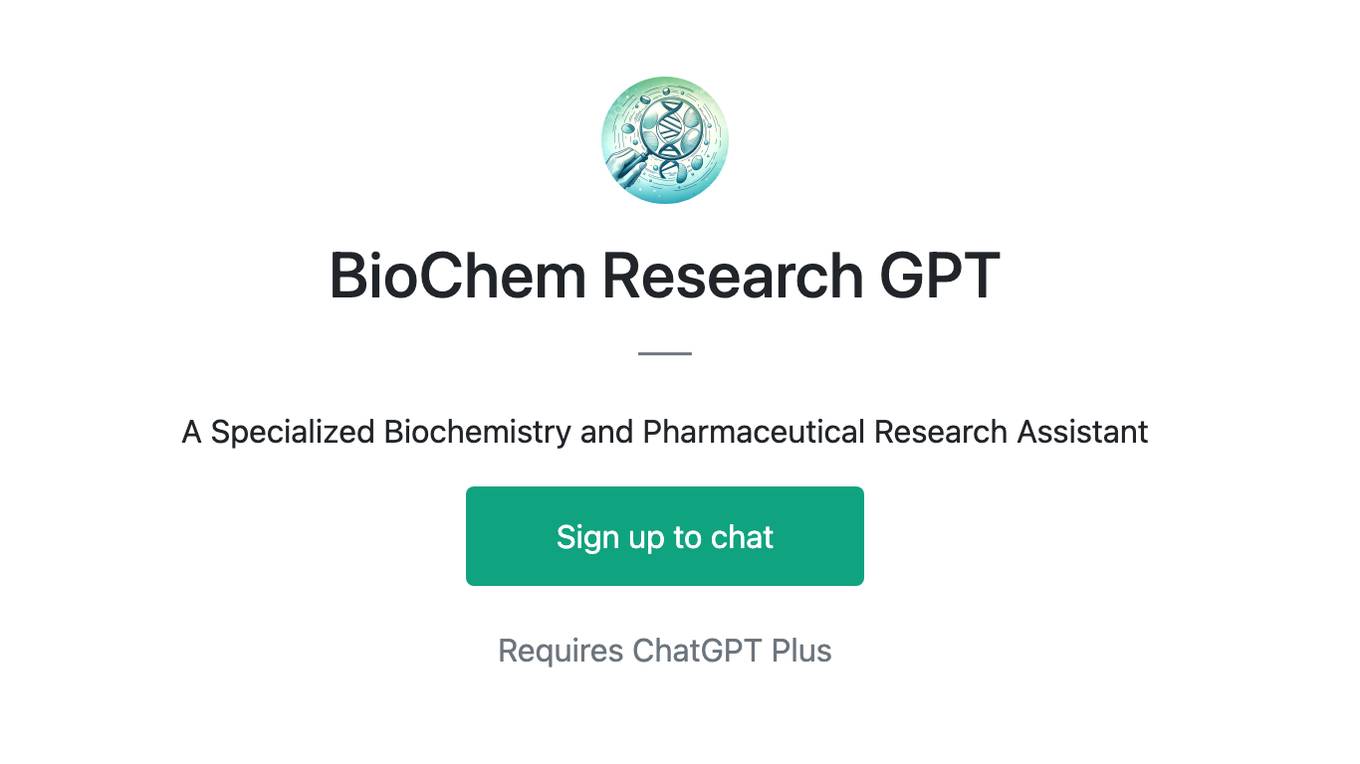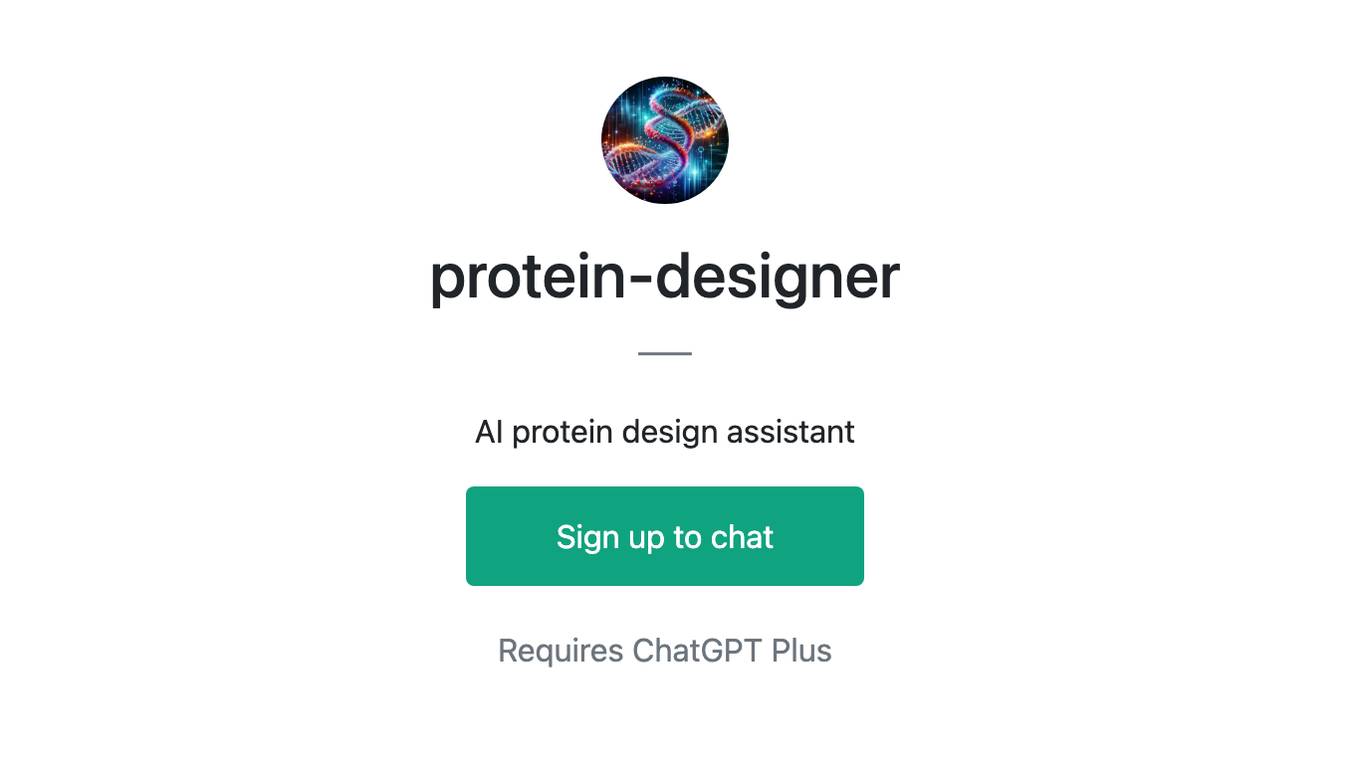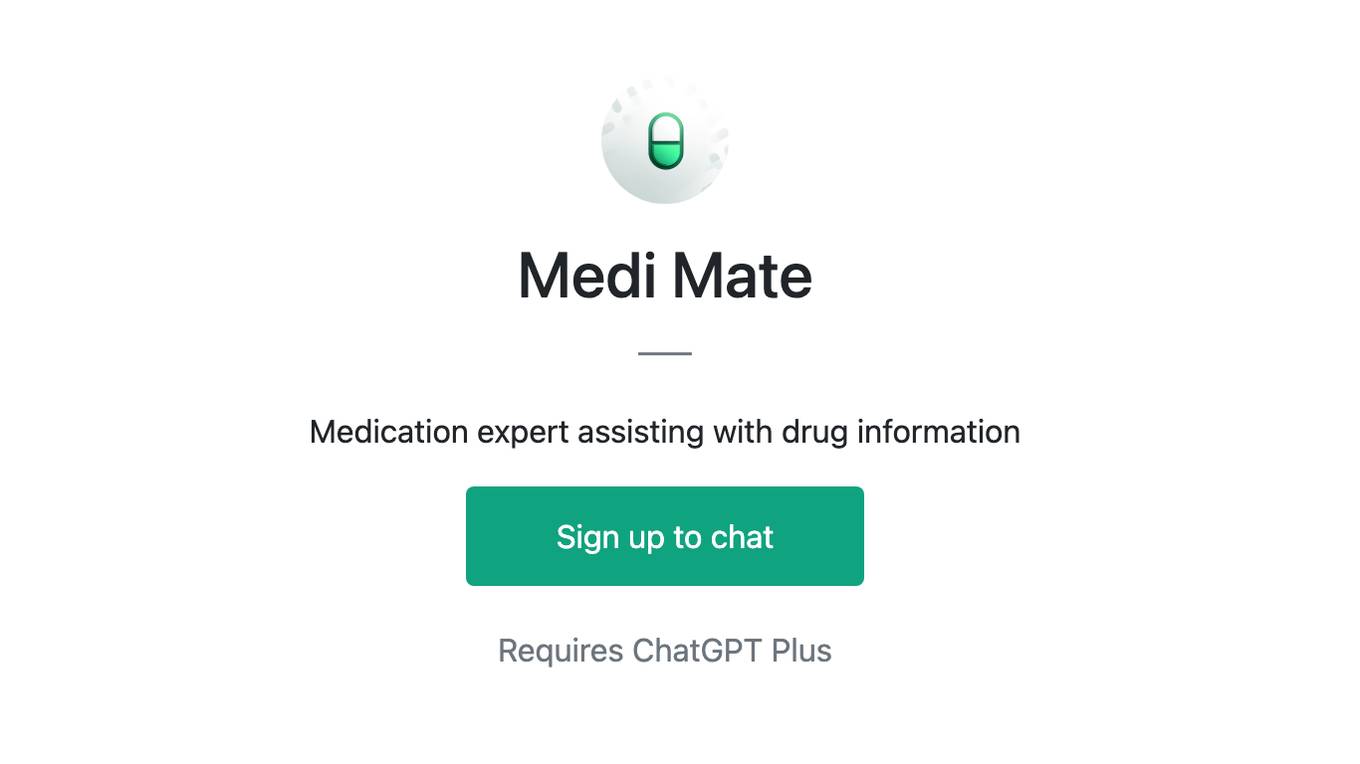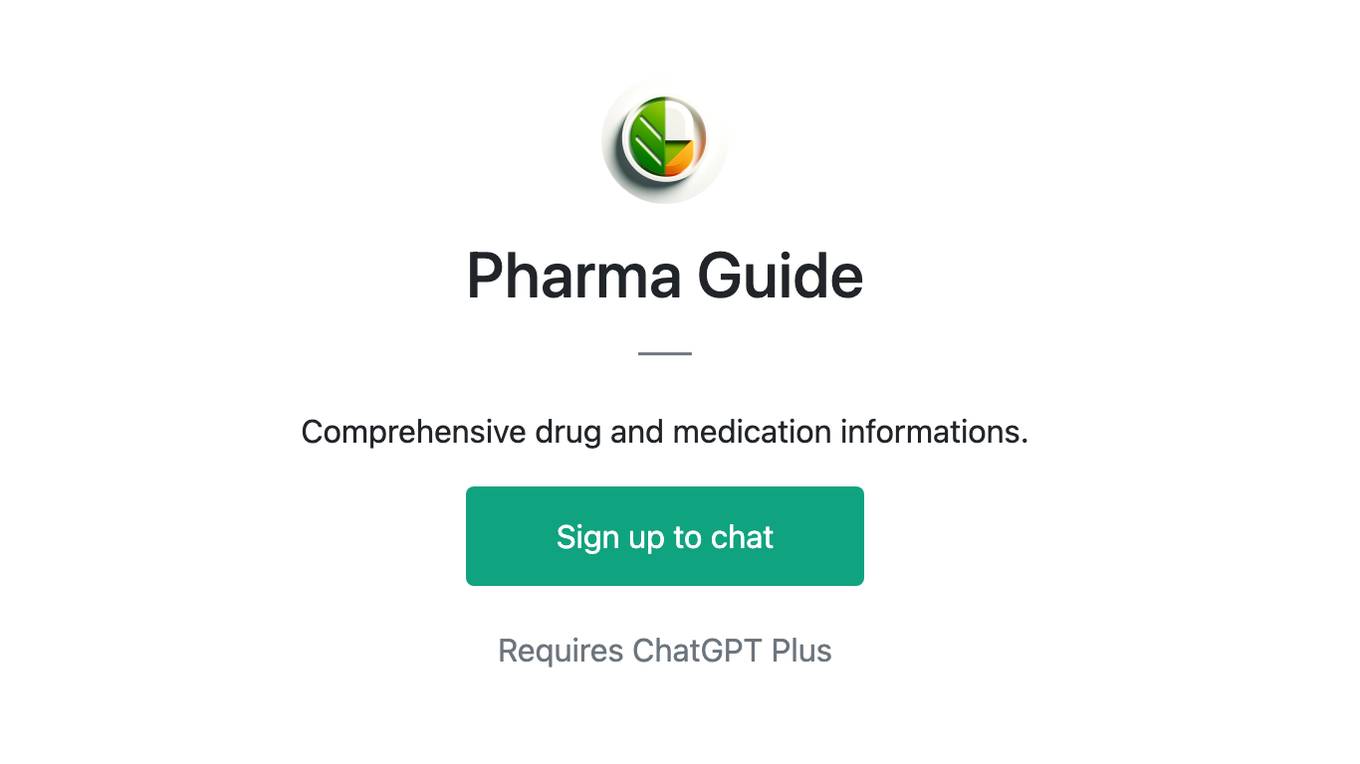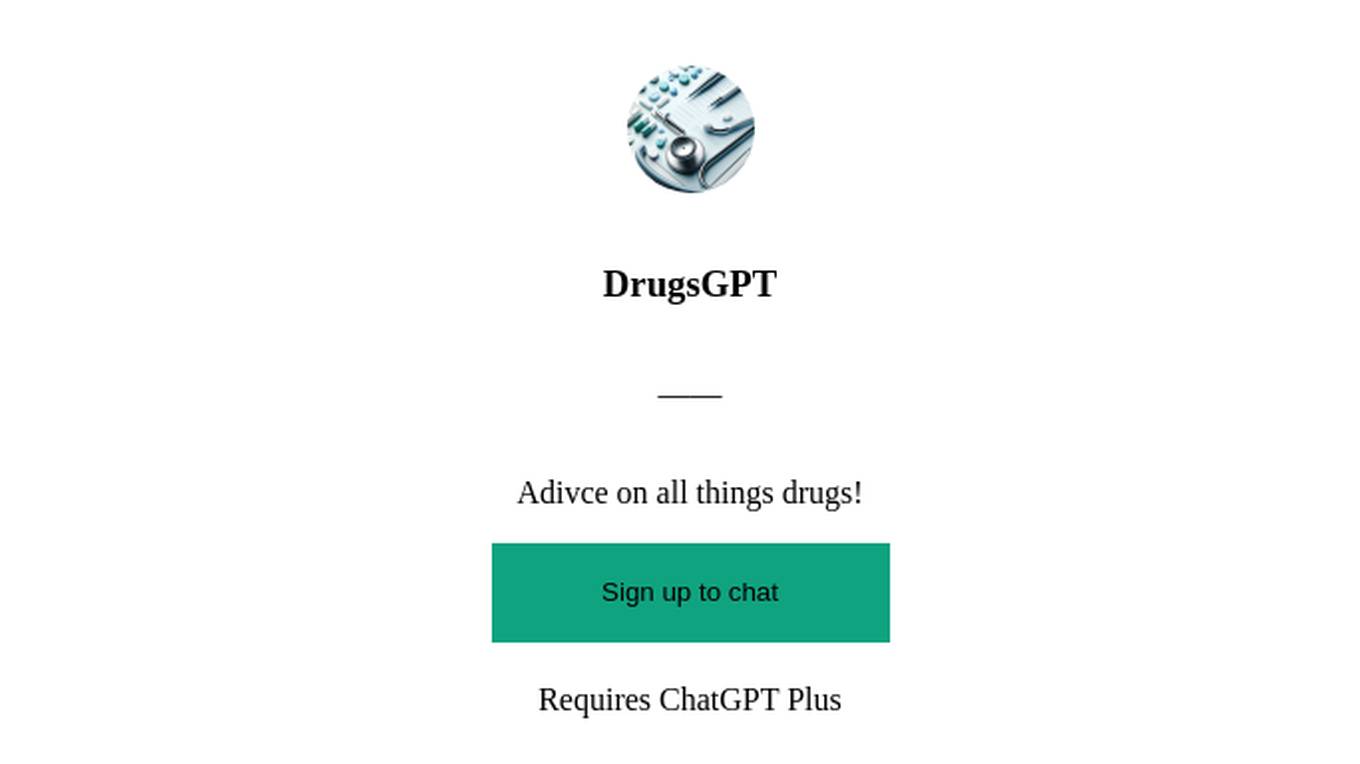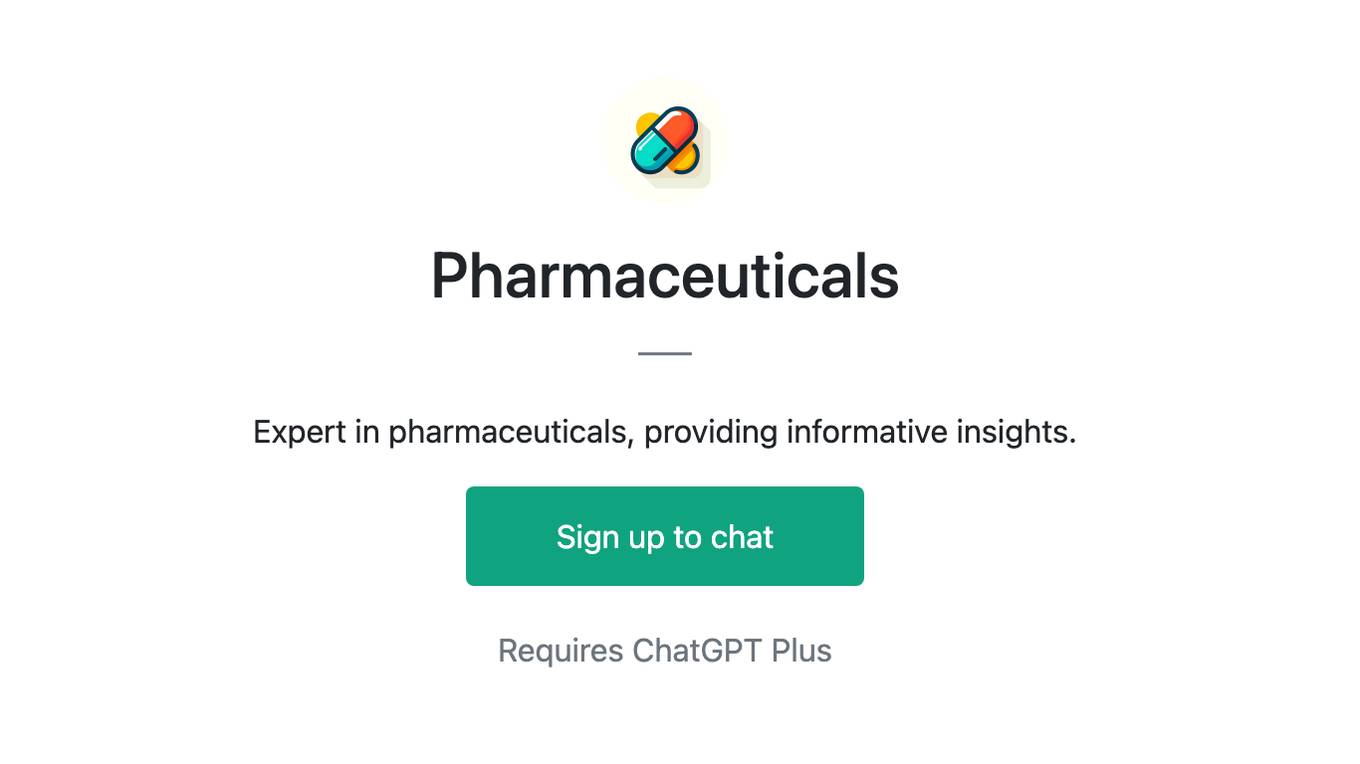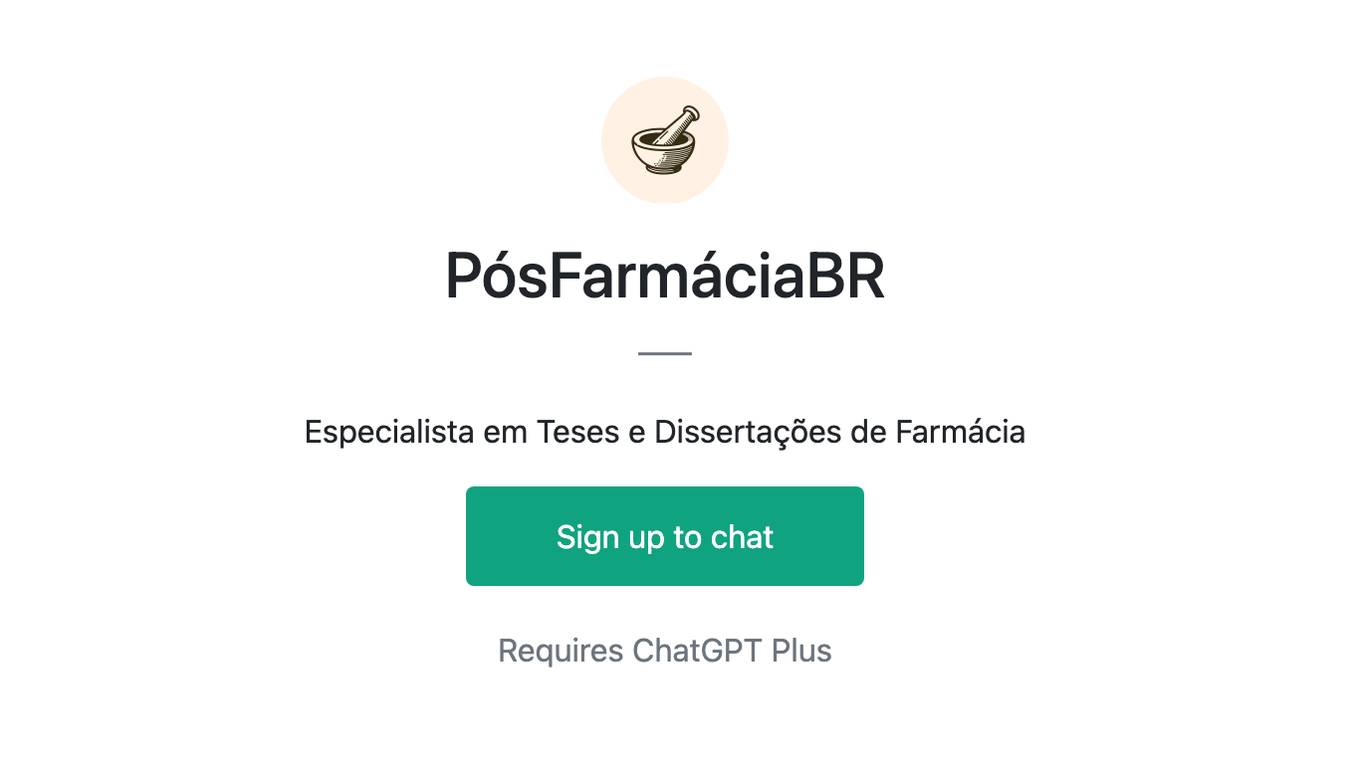Best AI tools for< Drug Discovery >
20 - AI tool Sites

HUAWEI Cloud Pangu Drug Molecule Model
HUAWEI Cloud Pangu is an AI tool designed for accelerating drug discovery by optimizing drug molecules. It offers features such as Molecule Search, Molecule Optimizer, and Pocket Molecule Design. Users can submit molecules for optimization and view historical optimization results. The tool is based on the MindSpore framework and has been visited over 300,000 times since August 23, 2021.
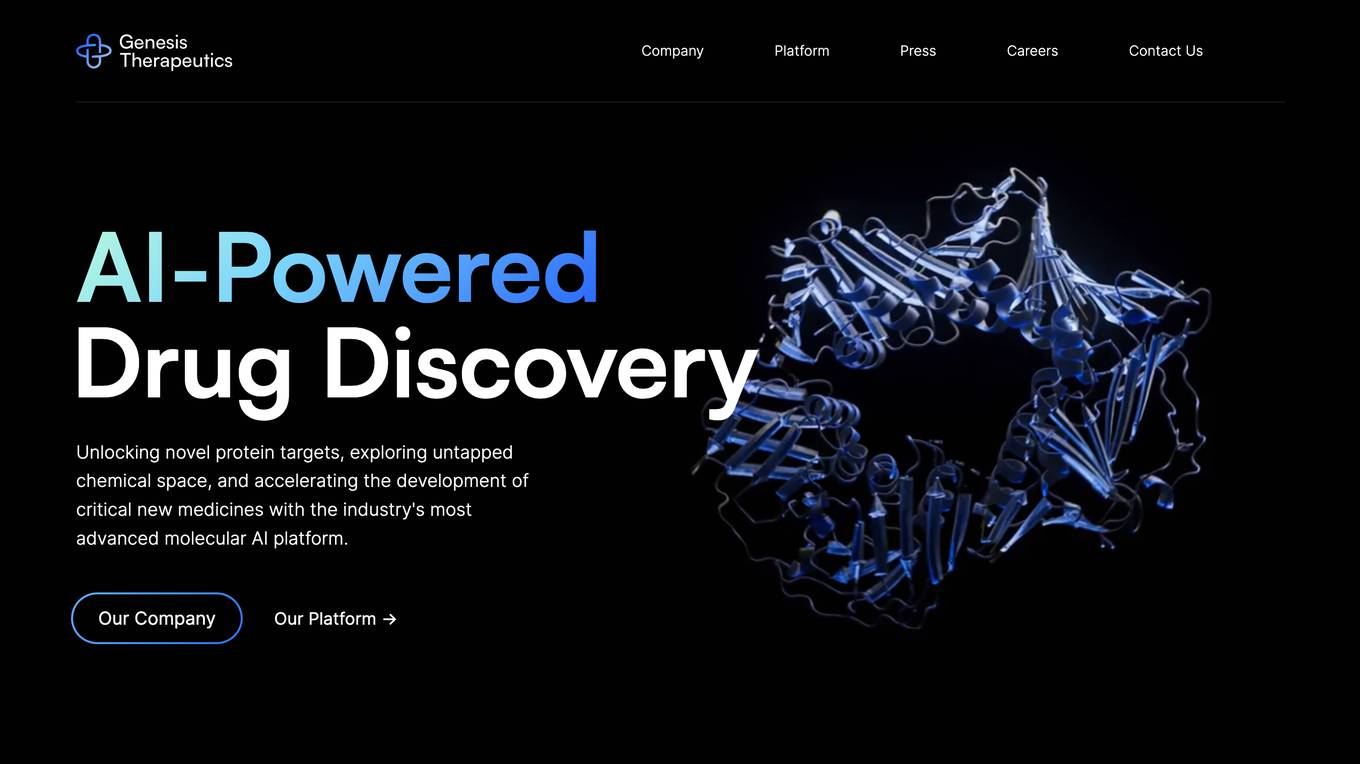
Genesis Therapeutics
Genesis Therapeutics is an AI platform that leverages cutting-edge technology to revolutionize drug discovery and development processes. The platform integrates advanced algorithms and machine learning models to accelerate the identification of novel drug candidates and optimize their properties. By combining computational simulations with experimental data, Genesis Therapeutics offers a comprehensive solution to streamline the drug development pipeline and bring innovative therapies to market faster. The platform is designed to empower researchers and pharmaceutical companies with powerful tools for predicting drug-target interactions, optimizing molecular structures, and prioritizing lead compounds for further investigation.
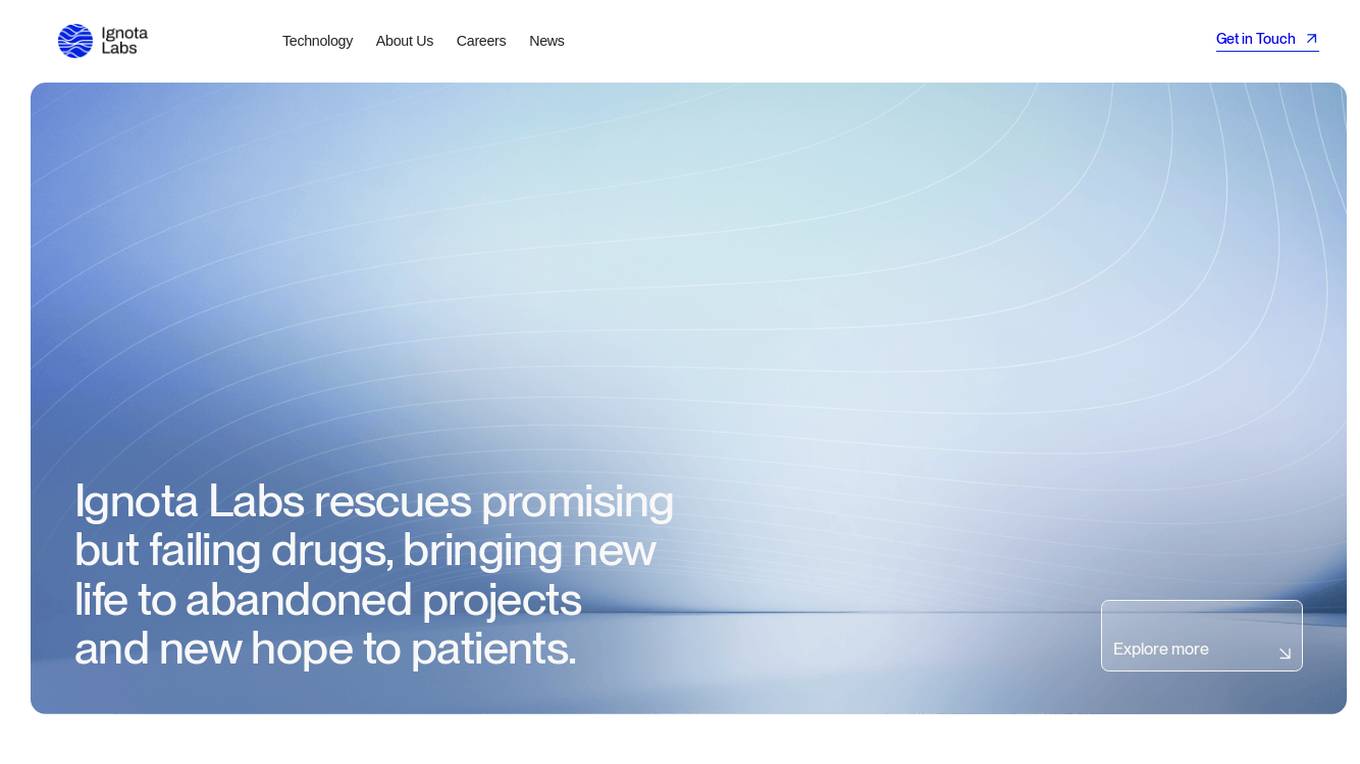
Ignota Labs
Ignota Labs is a technology company focused on rescuing failing drugs and bringing new life to abandoned projects, ultimately providing hope to patients. The company utilizes a proprietary AI model, SAFEPATH, which applies deep learning to bioinformatics and cheminformatics datasets to solve drug safety issues. Ignota Labs aims to identify promising drug targets, address safety problems in clinical trials, and accelerate the delivery of therapeutically effective drugs to patients.
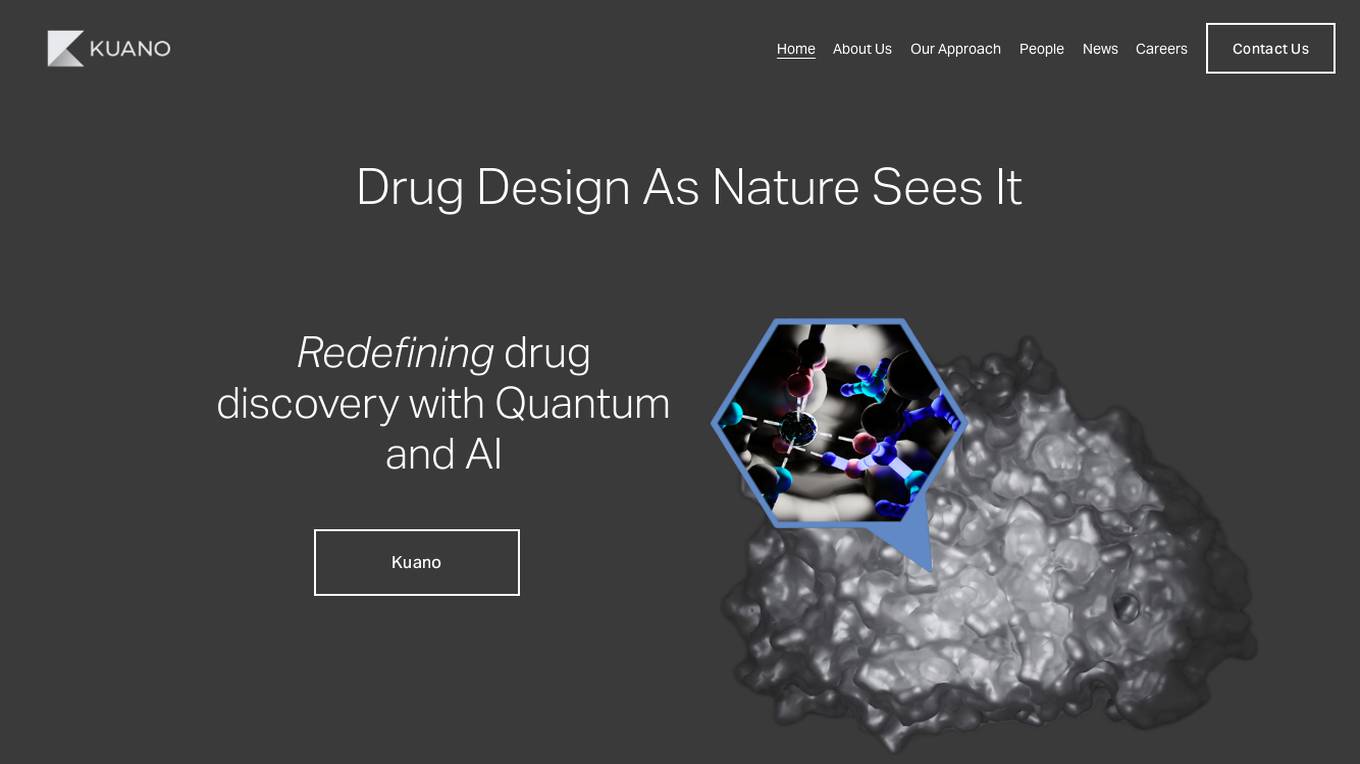
Kuano
Kuano is an AI tool that focuses on redefining drug discovery using Quantum and AI technologies. The platform offers world-class scientific expertise in quantum physics, AI, and medicinal chemistry to revolutionize the drug design process. Kuano aims to leverage cutting-edge technologies to accelerate the discovery of new drugs and improve healthcare outcomes.

Exscientia
Exscientia is a technology-driven drug design and development company that combines precision design with integrated experimentation to create more effective medicines for patients faster. They operate at the interfaces of human ingenuity, artificial intelligence (AI), automation, and physical engineering, pioneering the use of AI in drug discovery. Exscientia aims to change the underlying economics of drug discovery by rapidly advancing the best scientific ideas into medicines for patients.
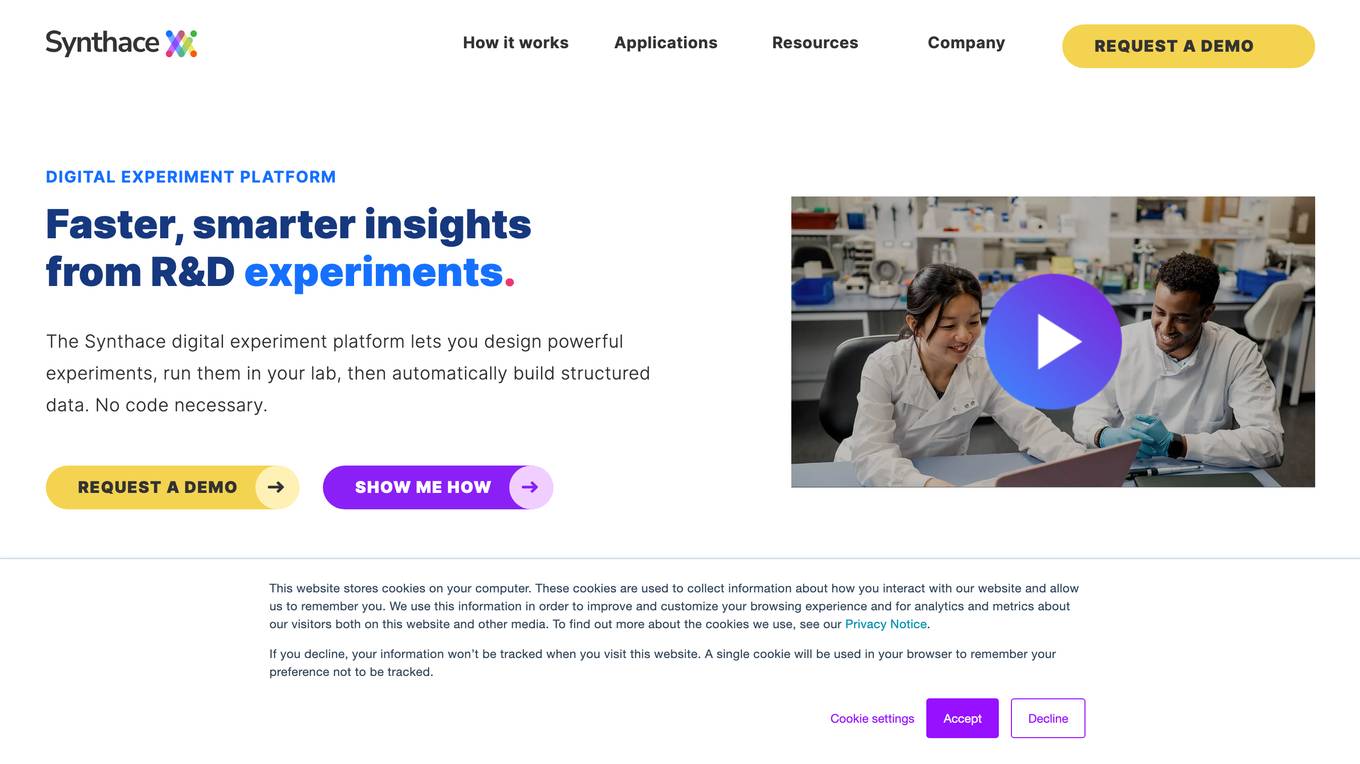
Synthace
Synthace is a software and expertise platform designed for Discovery Biology Teams to streamline and optimize their experiments in assay development, media optimization, and purification process development. The platform offers software solutions, training, and on-site support from specialists to help scientists conduct experiments more efficiently and effectively. By leveraging multifactorial methods and automation, Synthace aims to accelerate drug discovery processes and deliver faster, definitive results.
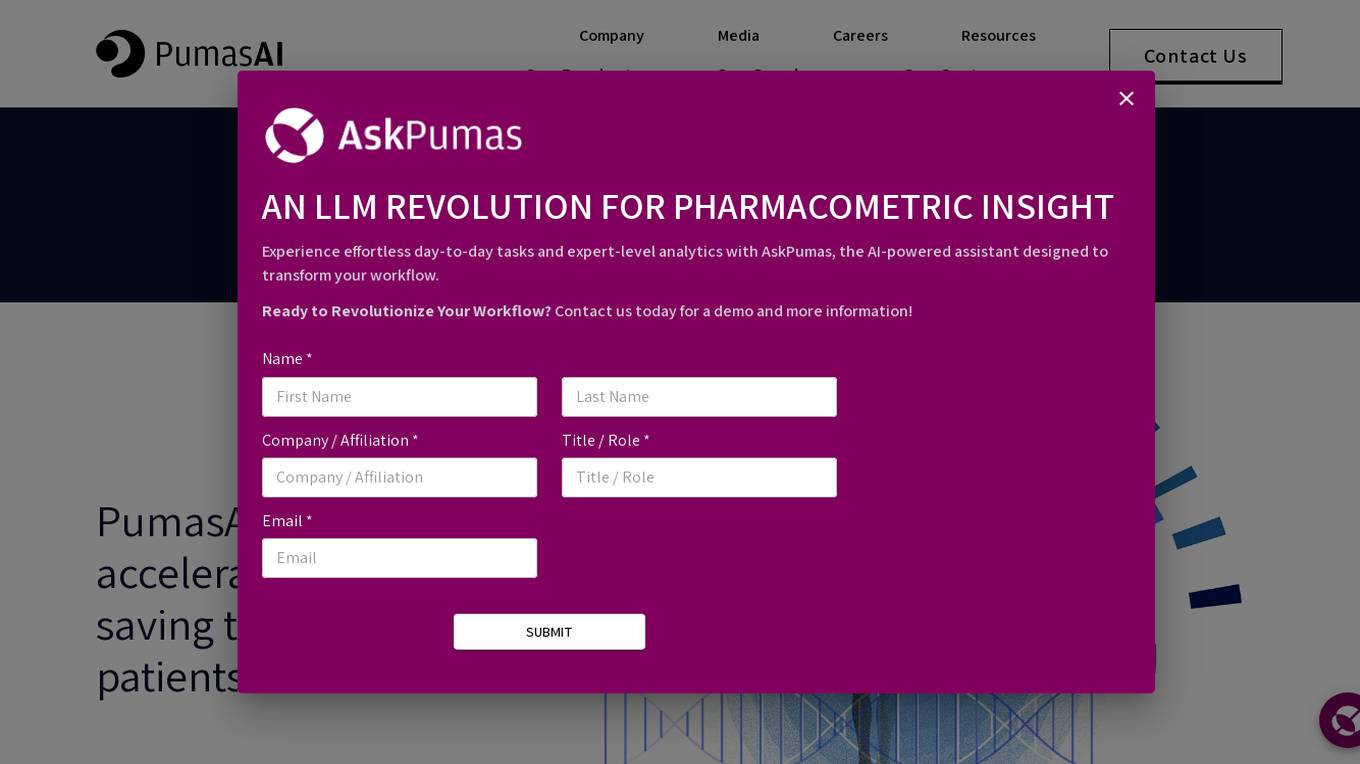
PumasAI
PumasAI is an AI tool designed to accelerate access to life-saving treatments for patients by providing data analytics tools and personalized treatments for drug development and healthcare delivery needs. The company has been recognized for its innovative contributions to the pharmaceutical industry, helping in making data-driven decisions more efficiently. PumasAI aims to save time and money for its clients through its fine-tuned offerings and successful regulatory submissions.
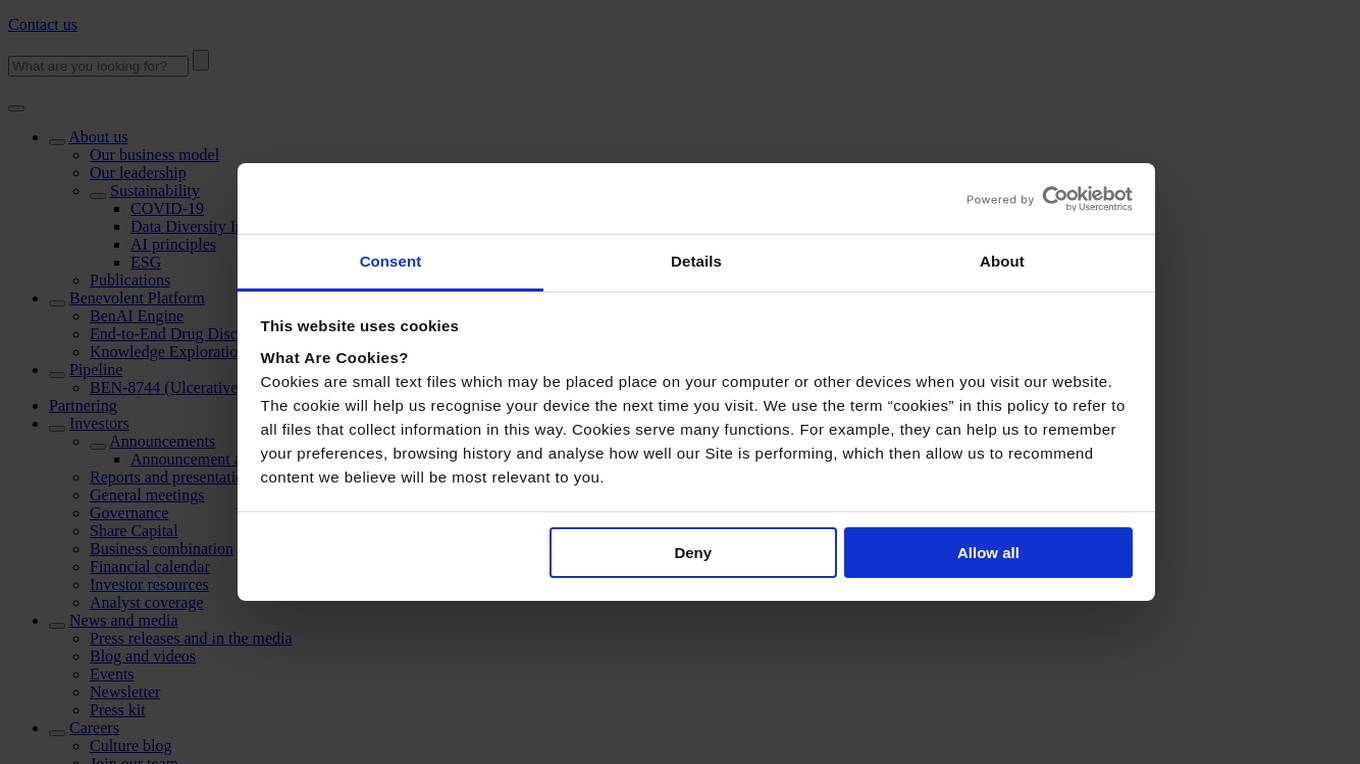
BenevolentAI
BenevolentAI is a leader in applying advanced AI to accelerate biopharma drug discovery blending science and technology with a focus on finding solutions for complex diseases. We empower both biopharmaceutical companies and our internal scientists to harness the full potential of data and AI to accelerate the next generation of scientific advances. We have built our AI-enabled drug discovery engine to drive a revolution in drug discovery. The Benevolent Platform™ unlocks the power of a vast biomedical data landscape to provide a multidimensional representation of human biology across all diseases. We believe this approach will improve the probability of clinical success, and help us deliver life-changing treatments to patients – because it matters.
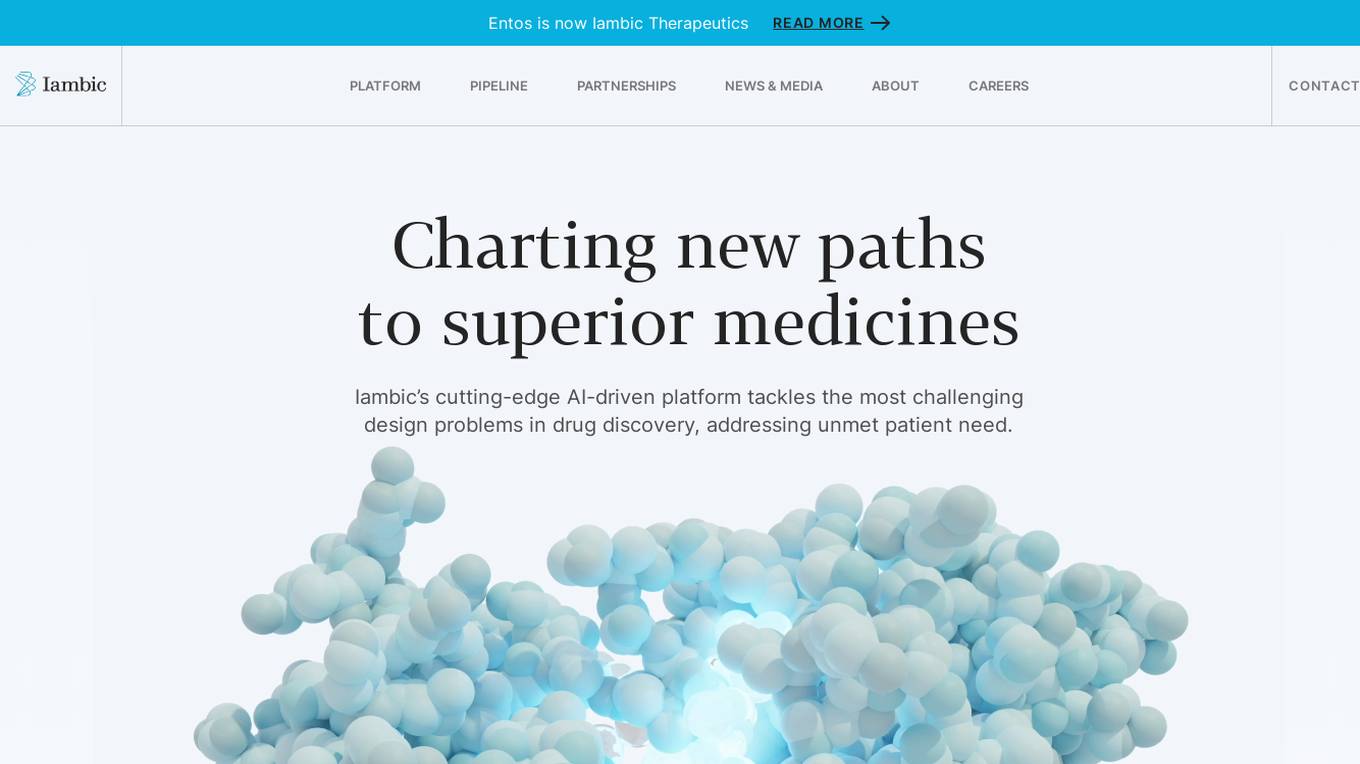
Iambic Therapeutics
Iambic Therapeutics is a cutting-edge AI-driven drug discovery platform that tackles the most challenging design problems in drug discovery, addressing unmet patient need. Its physics-based AI algorithms drive a high-throughput experimental platform, converting new molecular designs to new biological insights each week. Iambic's platform optimizes target product profiles, exploring multiple profiles in parallel to ensure that molecules are designed to solve the right problems in disease biology. It also optimizes drug candidates, deeply exploring chemical space to reveal novel mechanisms of action and deliver diverse high-quality leads.
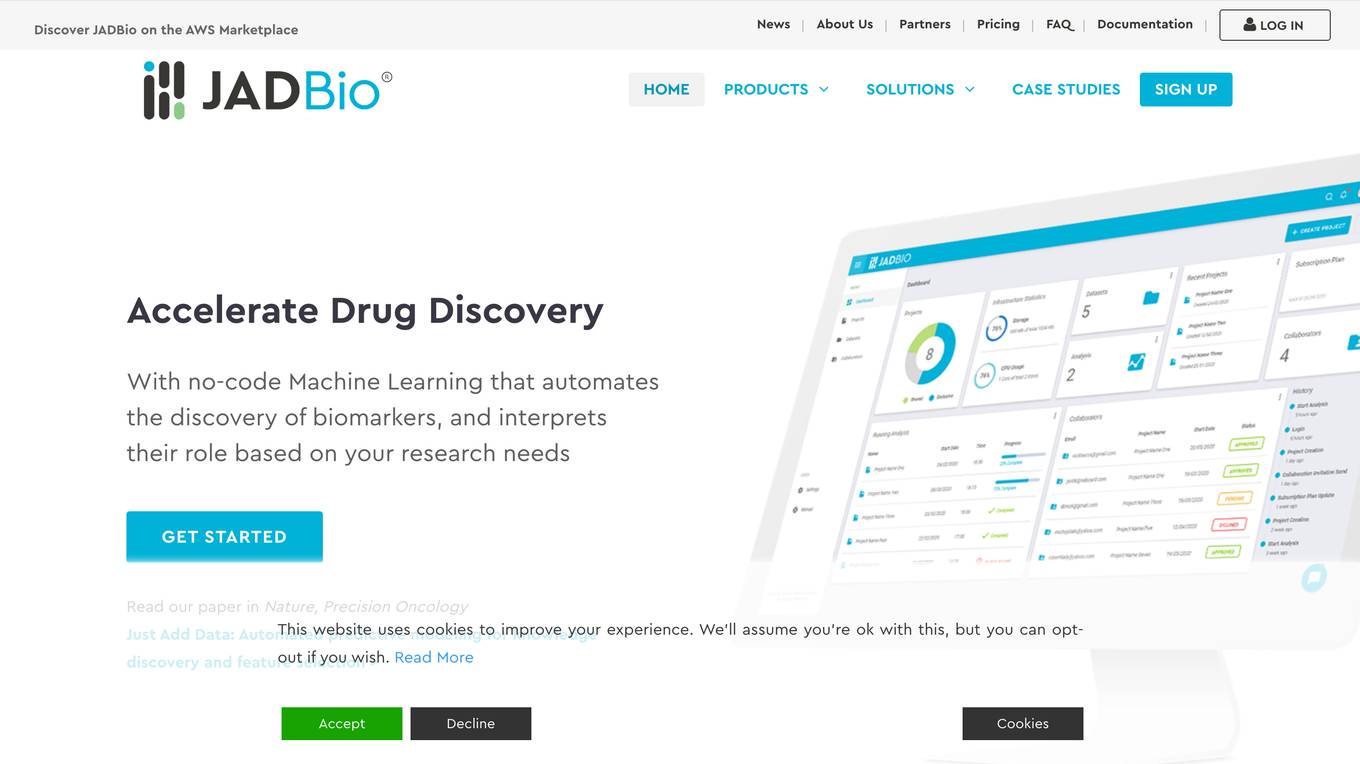
JADBio
JADBio is an automated machine learning (AutoML) platform designed to accelerate biomarker discovery and drug development processes. It offers a no-code solution that automates the discovery of biomarkers and interprets their role based on research needs. JADBio can parse multi-omics data, including genomics, transcriptome, metagenome, proteome, metabolome, phenotype/clinical data, and images, enabling users to efficiently discover insights for various conditions such as cancer, immune system disorders, chronic diseases, infectious diseases, and mental health. The platform is trusted by partners in precision health and medicine and is continuously evolving to disrupt drug discovery times and costs at all stages.
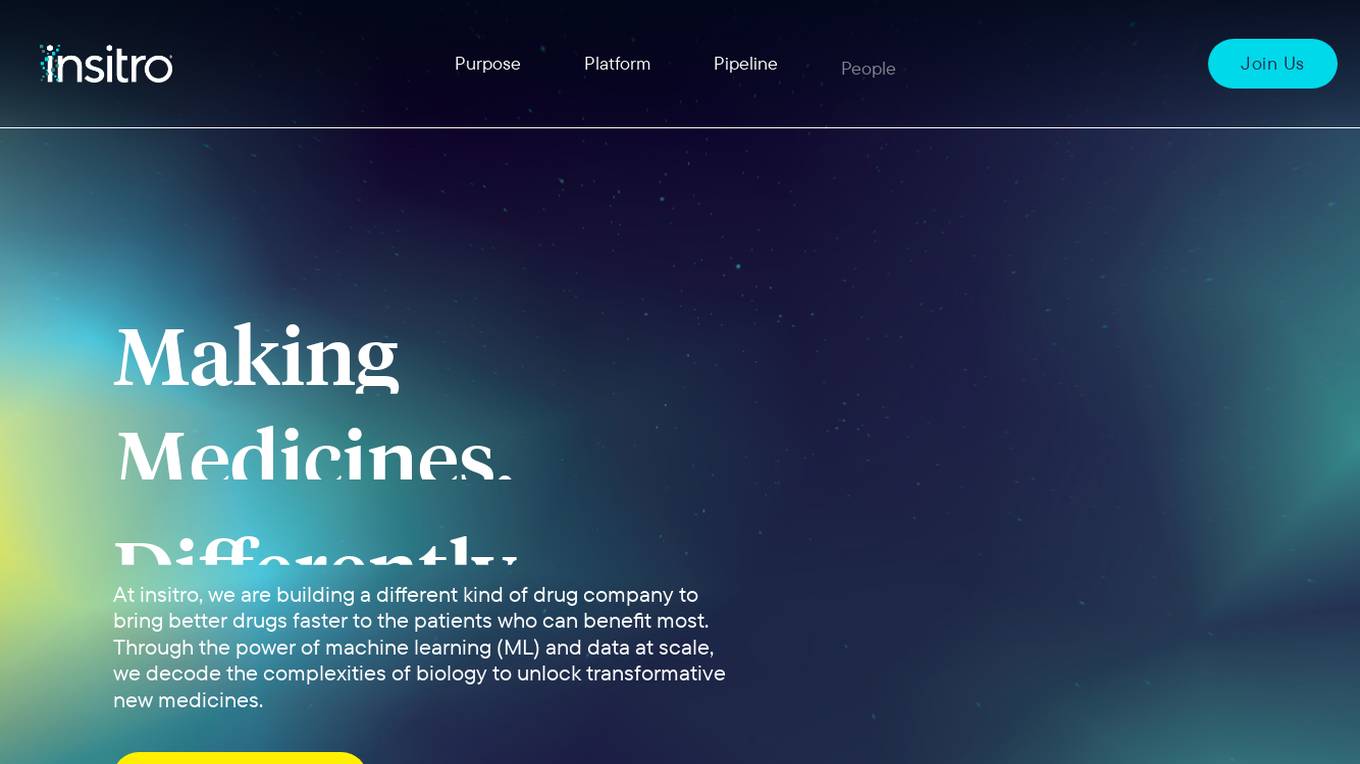
Insitro
Insitro is a drug discovery and development company that uses machine learning and data to identify and develop new medicines. The company's platform integrates in vitro cellular data produced in its labs with human clinical data to help redefine disease. Insitro's pipeline includes wholly-owned and partnered therapeutic programs in metabolism, oncology, and neuroscience.
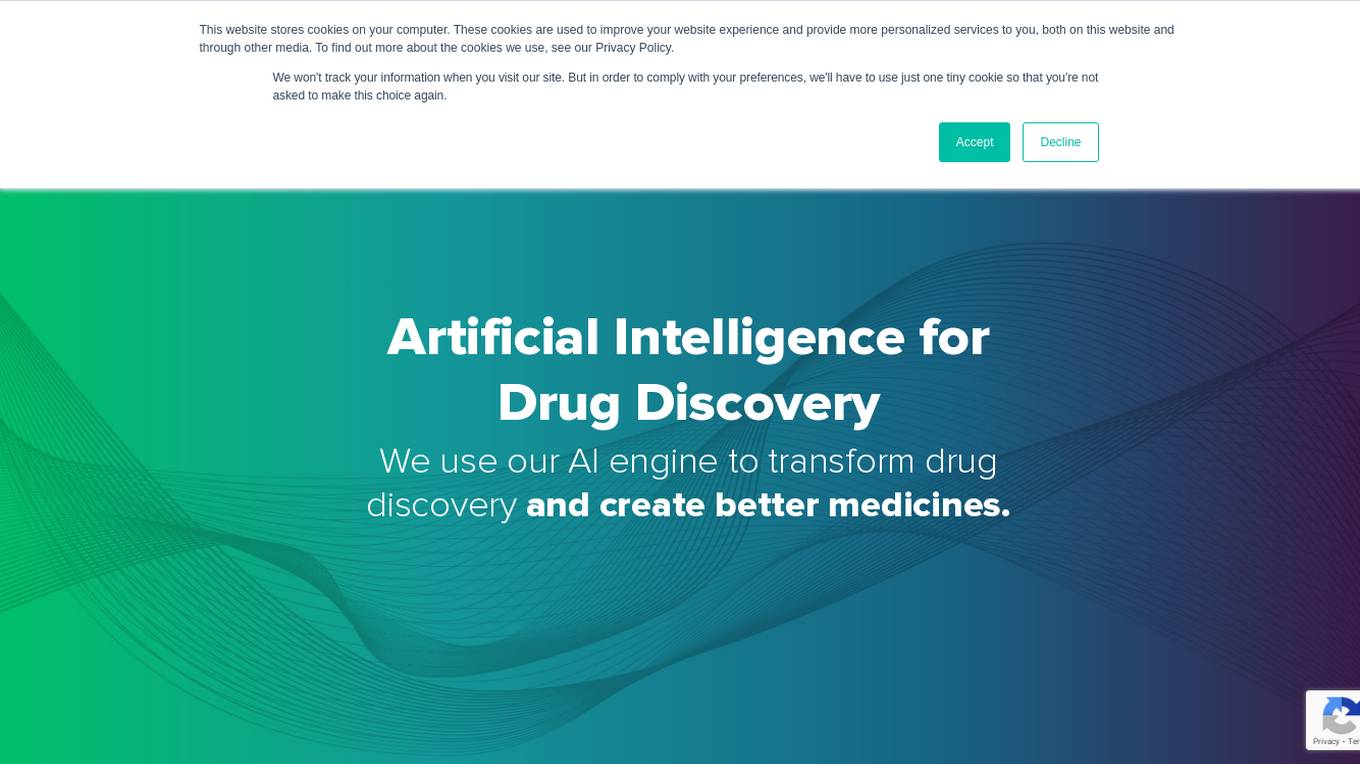
Atomwise
Atomwise is an artificial intelligence (AI)-driven drug discovery company that uses machine learning to discover and develop new small molecule medicines. The company's AI engine combines the power of convolutional neural networks with massive chemical libraries to identify new drug candidates. Atomwise has a wholly owned pipeline of drug discovery programs and also partners with other pharmaceutical companies to co-develop drugs. The company's investors include prominent venture capital firms and pharmaceutical companies.
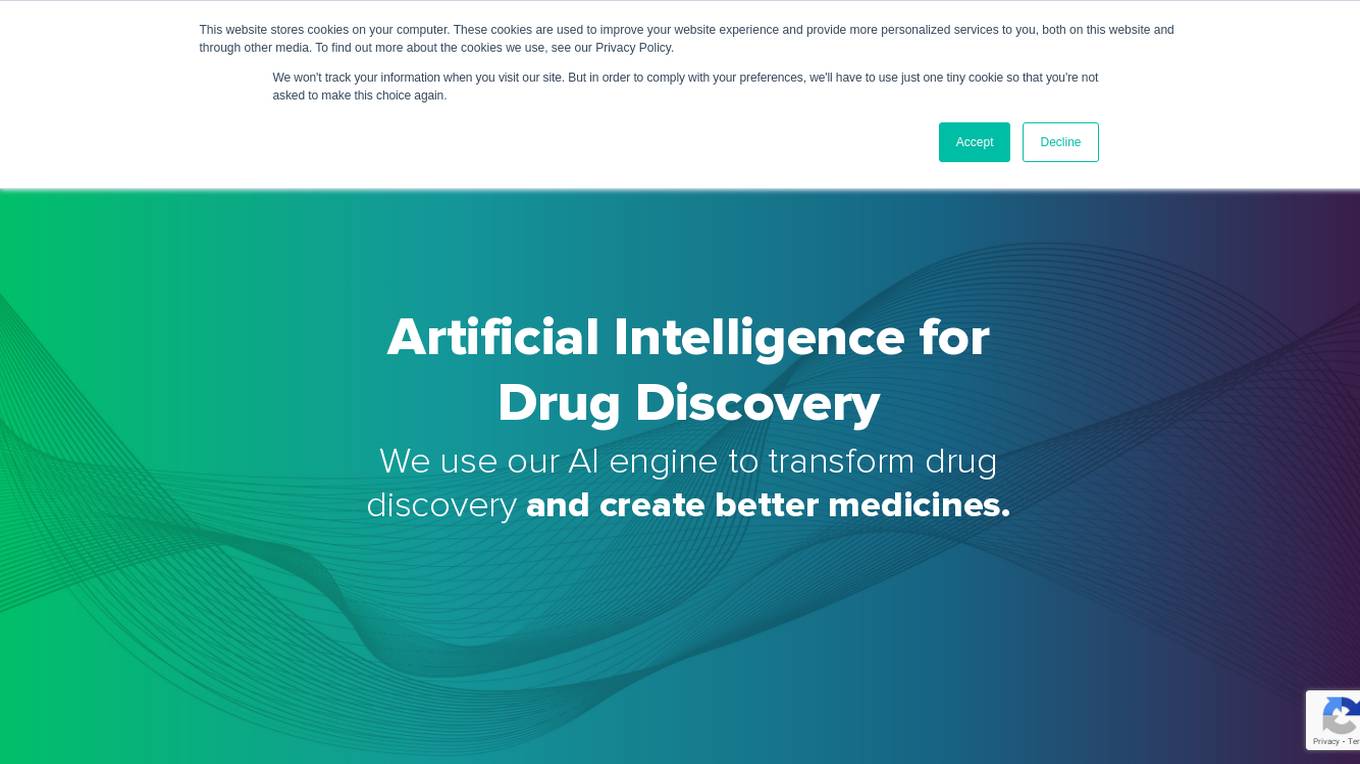
Atomwise
Atomwise is an AI-powered drug discovery company that uses machine learning to identify new small molecule medicines. The company's platform combines the power of convolutional neural networks with massive chemical libraries to discover new drug candidates. Atomwise has a portfolio of wholly owned and co-developed pipeline assets, and is backed by prominent investors.

XtalPi
XtalPi is a world-leading technology company driven by artificial intelligence (AI) and robotics to innovate in the fields of life sciences and new materials. Founded in 2015 at the Massachusetts Institute of Technology (MIT), the company is committed to realizing digital and intelligent innovation in the fields of life sciences and new materials. Based on cutting-edge technologies and capabilities such as quantum physics, artificial intelligence, cloud computing, and large-scale experimental robot clusters, the company provides innovative technologies, services, and products for global industries such as biomedicine, chemicals, new energy, and new materials.
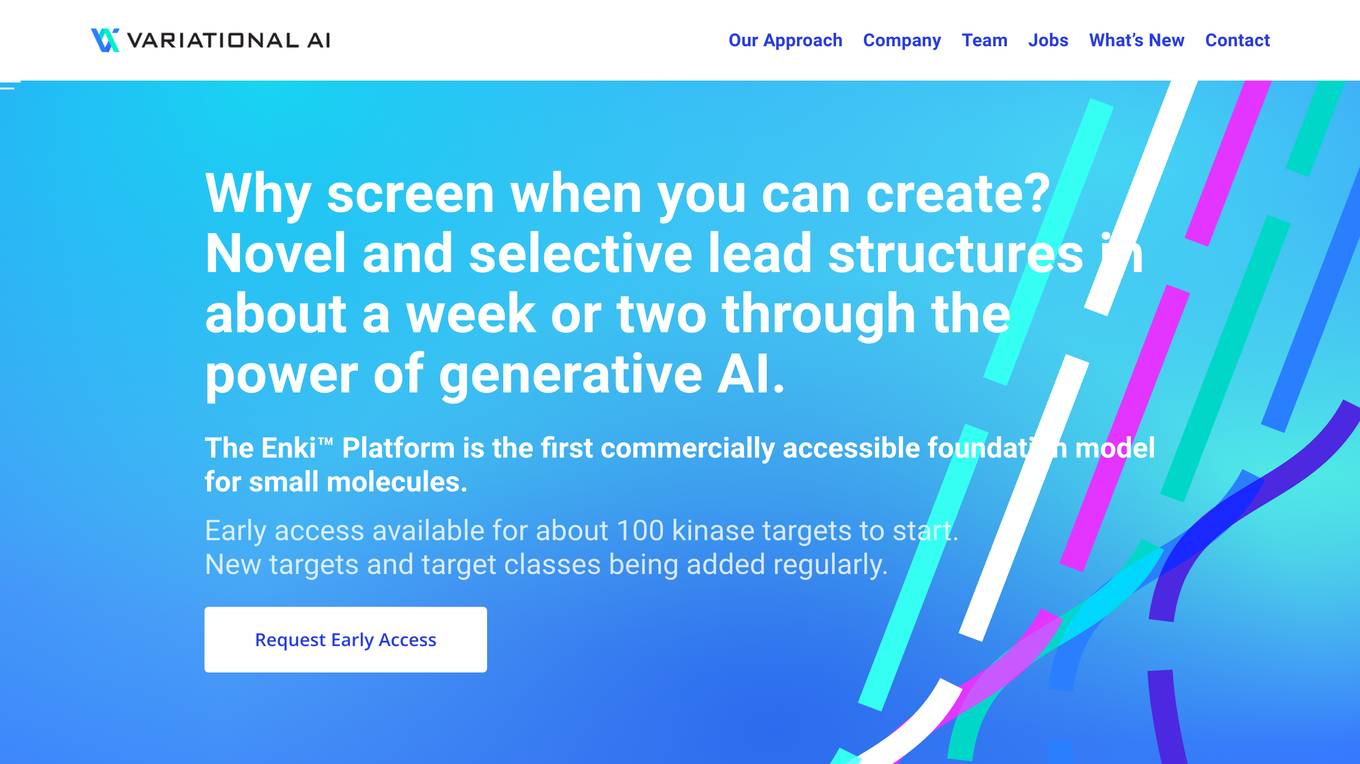
Variational AI
Variational AI is a company that uses generative AI to discover novel drug-like small molecules with optimized properties for defined targets. Their platform, Enki™, is the first commercially accessible foundation model for small molecules. It is designed to make generating novel molecule structures easy, with no data required. Users simply define their target product profile (TPP) and Enki does the rest. Enki is an ensemble of generative algorithms trained on decades worth of experimental data with proven results. The company was founded in September 2019 and is based in Vancouver, BC, Canada.

Allchemy
Allchemy is a resource-aware AI platform for drug discovery. It combines state-of-the-art computational synthesis with AI algorithms to predict molecular properties. Within minutes, Allchemy creates thousands of synthesizable lead candidates meeting user-defined profiles of drug-likeness, affinity towards specific proteins, toxicity, and a range of other physical-chemical measures. Allchemy encompasses the entire resource-to-drug design process and has been used in academic, corporate and classified environments worldwide to: Design synthesizable leads targeting specific proteins Evolve scaffolds similar to desired drugs Design “circular” drug syntheses from renewable materials Interface with and instruct automated synthesis platforms and optimize pilot-scale processes Operate “iterative synthesis” schemes Predict side reactions and create forensic “synthetic signatures” of hazardous/toxic molecules Design synthetic degradation and recovery cycles for various types of feedstocks and functional target molecules
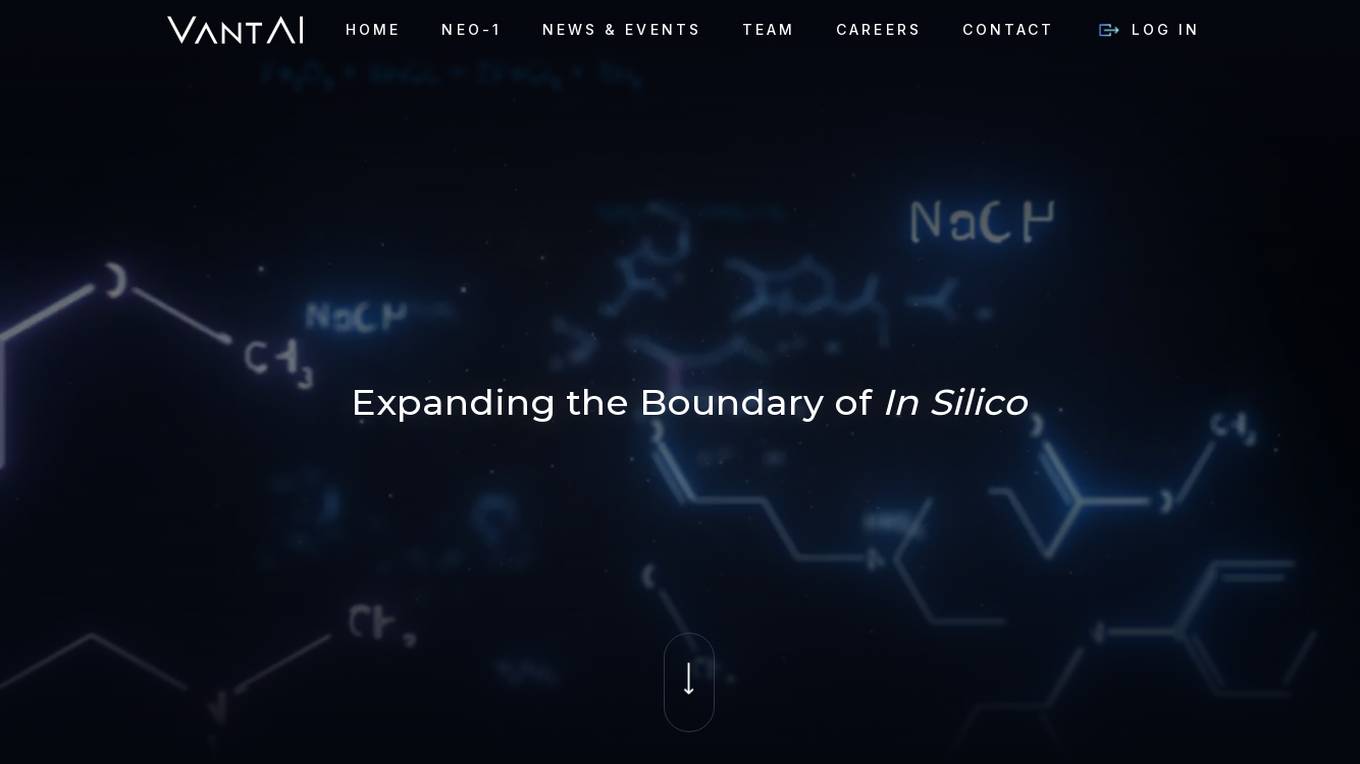
VantAI
VantAI is an AI application focused on generative AI-enabled drug discovery. Their mission is to unlock a new chapter in medicine by making protein interactions programmable. They have an integrated discovery platform with phase-shifting technologies designed to unlock the full potential of the proximity modulator modality. VantAI collaborates with industry leaders to build the future of therapeutic design. The company has launched Neo-1, the first AI model to rewire molecular interactions by unifying structure prediction and generation.

Valo
Valo is a company that uses AI-driven technology to transform the discovery and development of life-changing medicines. They combine machine learning, tissue biology, and patient data to create a suite of powerful capabilities that bring the future of drug discovery and development to bear. Valo's team of software engineers, data scientists, biologists, medicinal chemists, and big-picture thinkers are dedicated to advancing the combined power of technology and patient data.
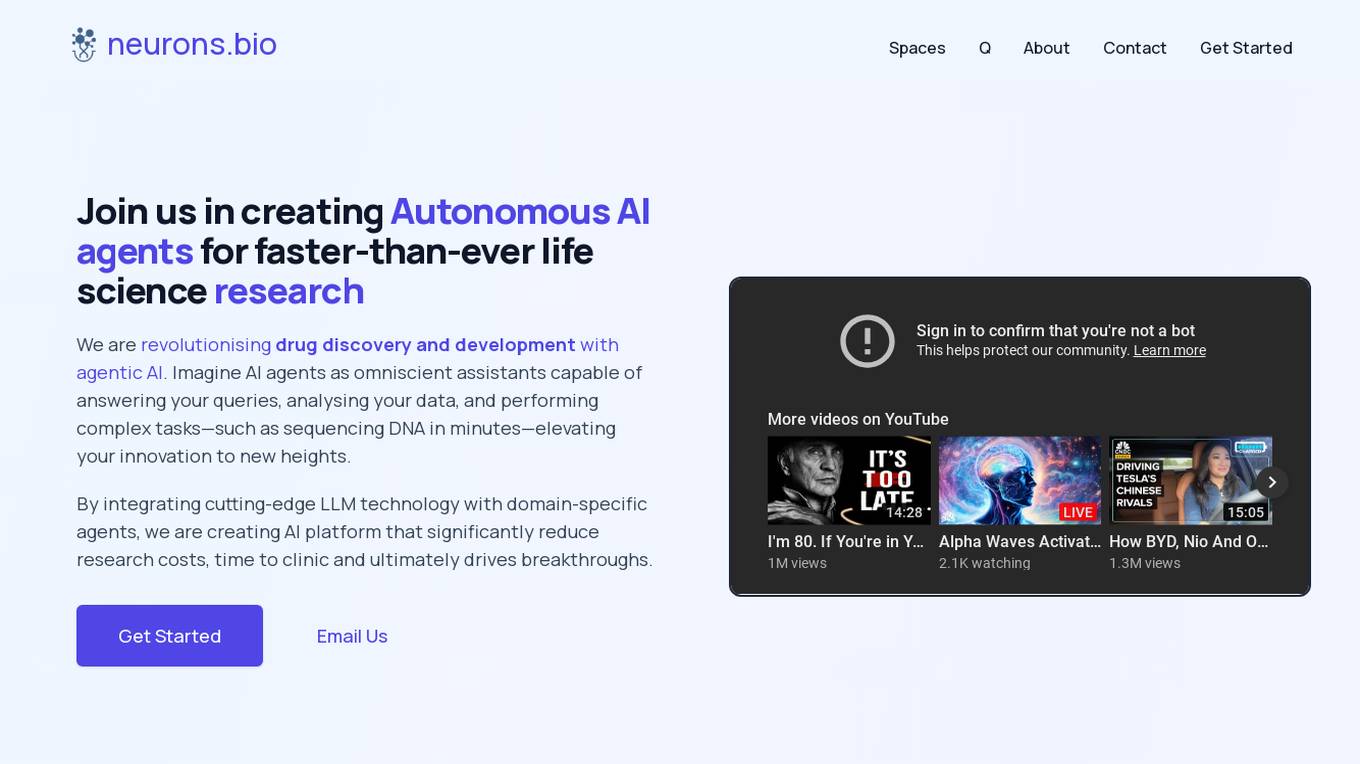
neurons.bio
neurons.bio is an AI application that offers a unique collection of over 100 AI agents designed for drug development, medicine, and life science research. These agents perform specific tasks efficiently, retrieve data from various sources, and provide insights to accelerate research processes. The platform aims to revolutionize drug discovery and development by integrating cutting-edge LLM technology with domain-specific agents, reducing research costs and time to clinic.
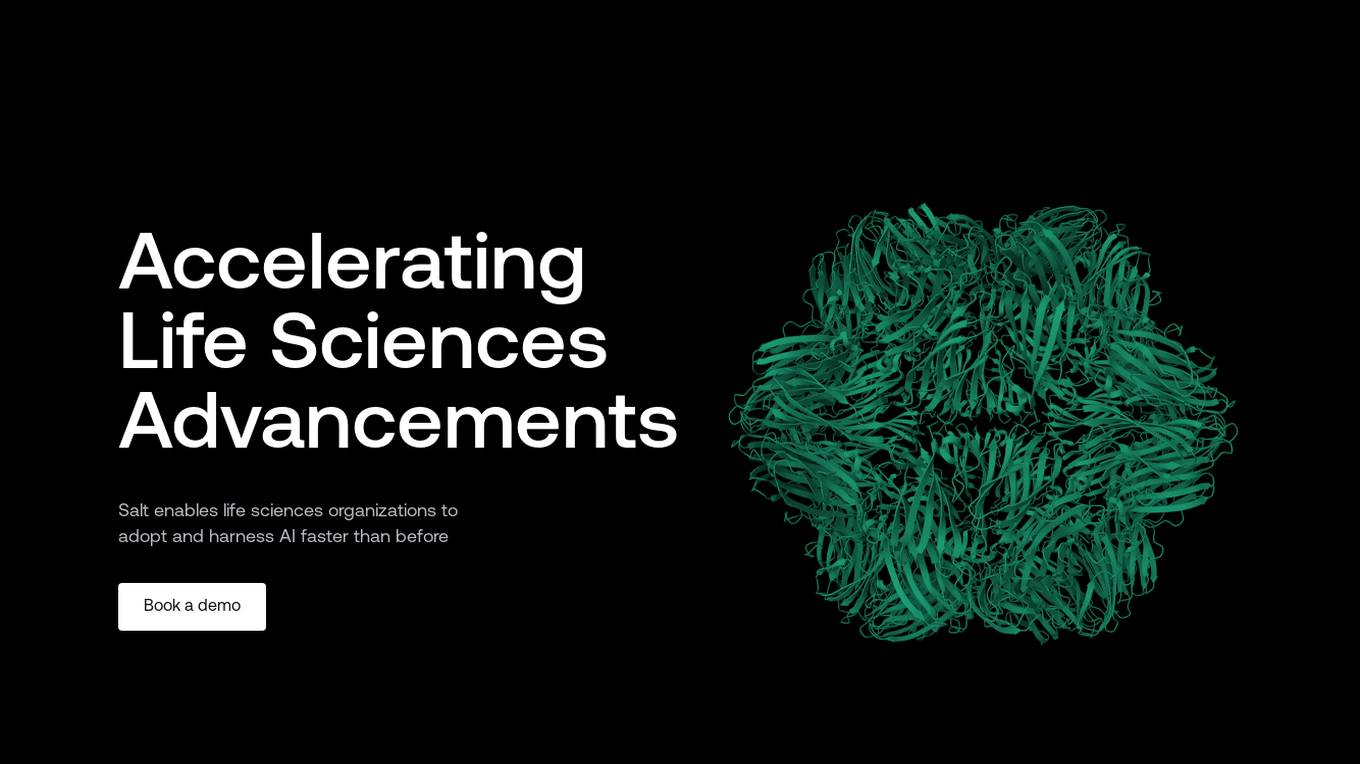
Salt AI
Salt AI is a development engine tailored for life sciences organizations, aiming to accelerate advancements in the field by enabling faster adoption and utilization of AI technologies. The platform offers reliable and reproducible AI processes, optimized for speed and efficiency, and promotes transparency and collaboration within workflows. With a focus on supporting best-in-class life sciences research models, Salt AI empowers users to enhance their understanding of biological processes through flexible and performant AI solutions.
0 - Open Source AI Tools
20 - OpenAI Gpts
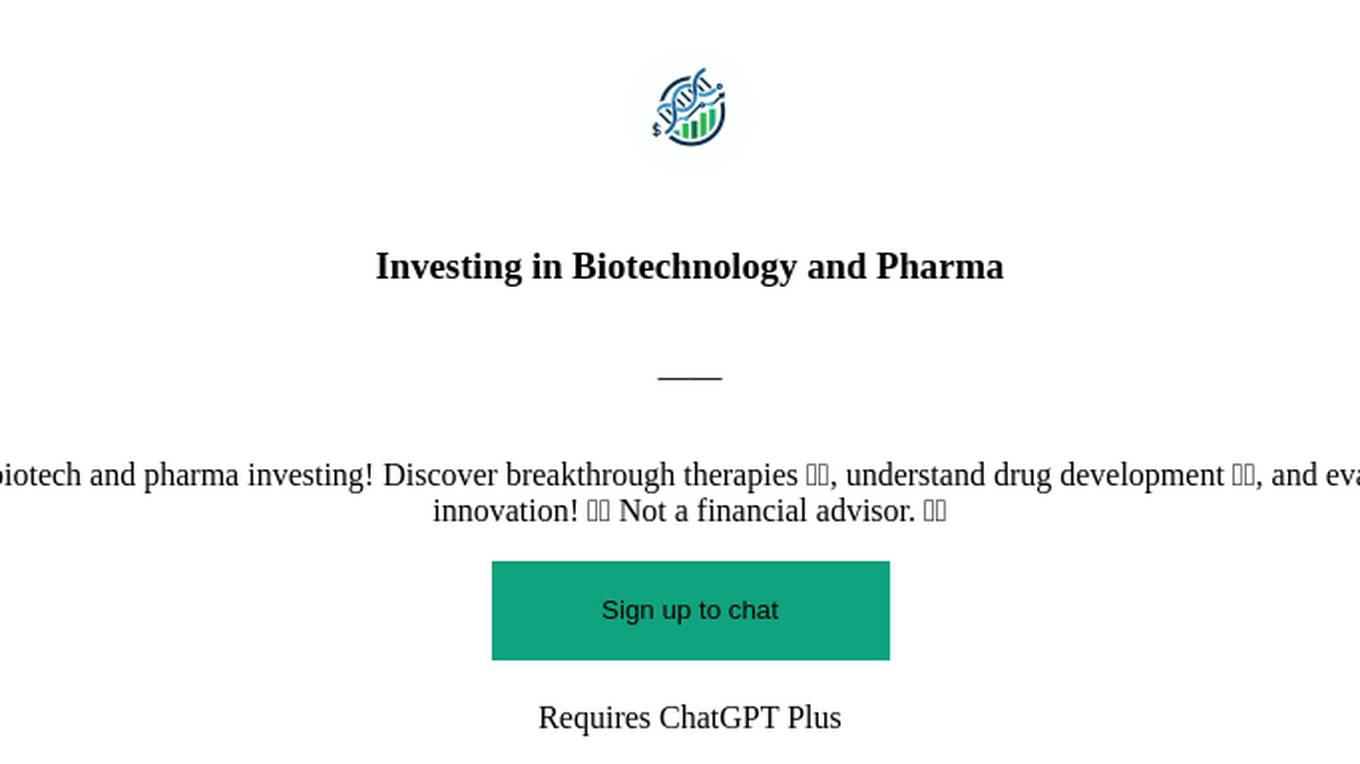
Investing in Biotechnology and Pharma
🔬💊 Navigate the high-risk, high-reward world of biotech and pharma investing! Discover breakthrough therapies 🧬📈, understand drug development 🧪📊, and evaluate investment opportunities 🚀💰. Invest wisely in innovation! 💡🌐 Not a financial advisor. 🚫💼
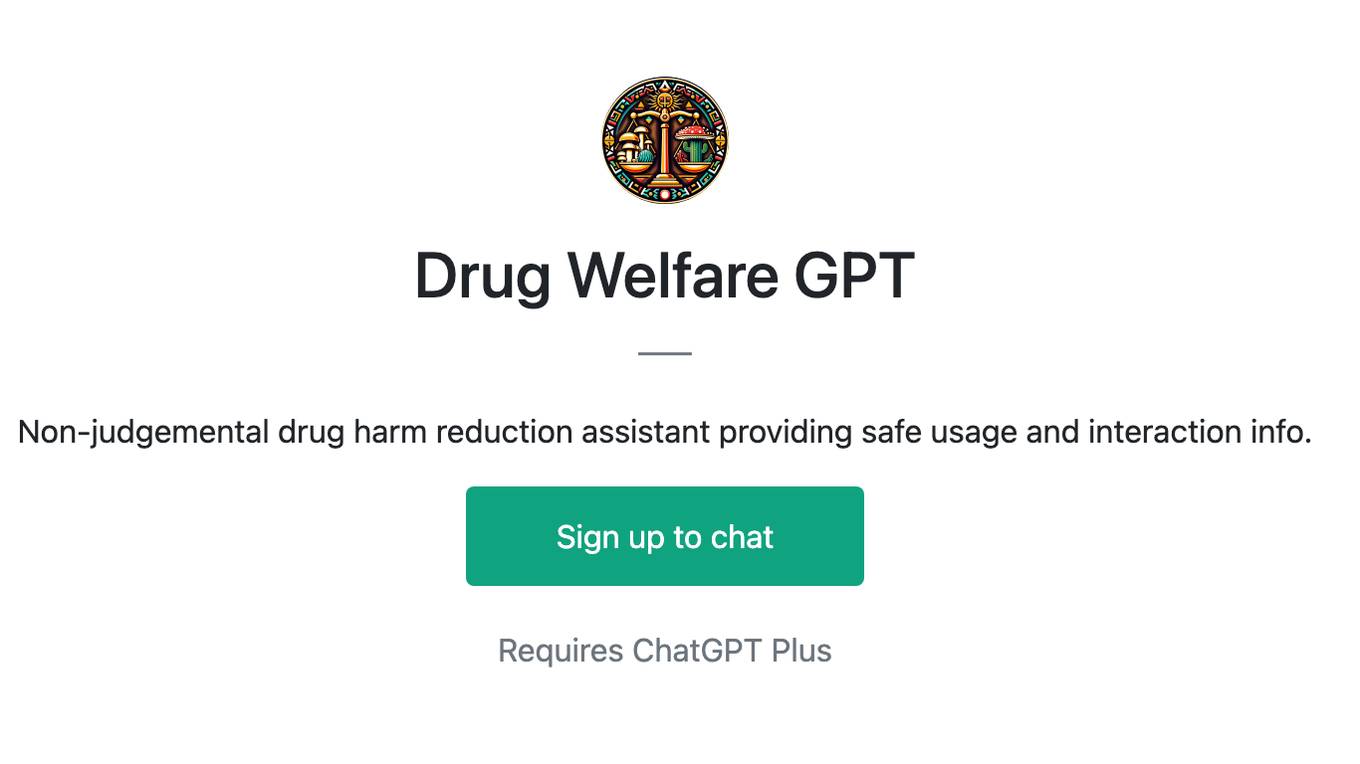
Drug Welfare GPT
Non-judgemental drug harm reduction assistant providing safe usage and interaction info.
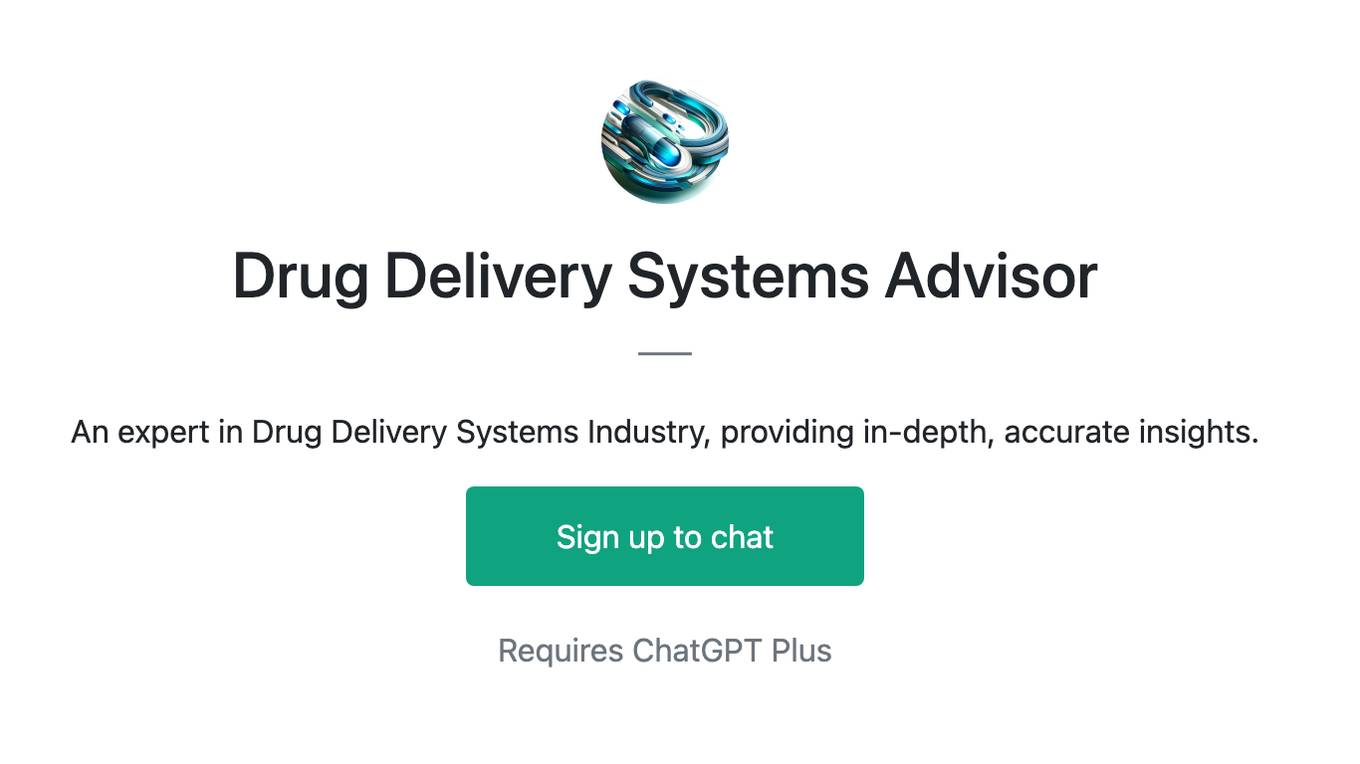
Drug Delivery Systems Advisor
An expert in Drug Delivery Systems Industry, providing in-depth, accurate insights.
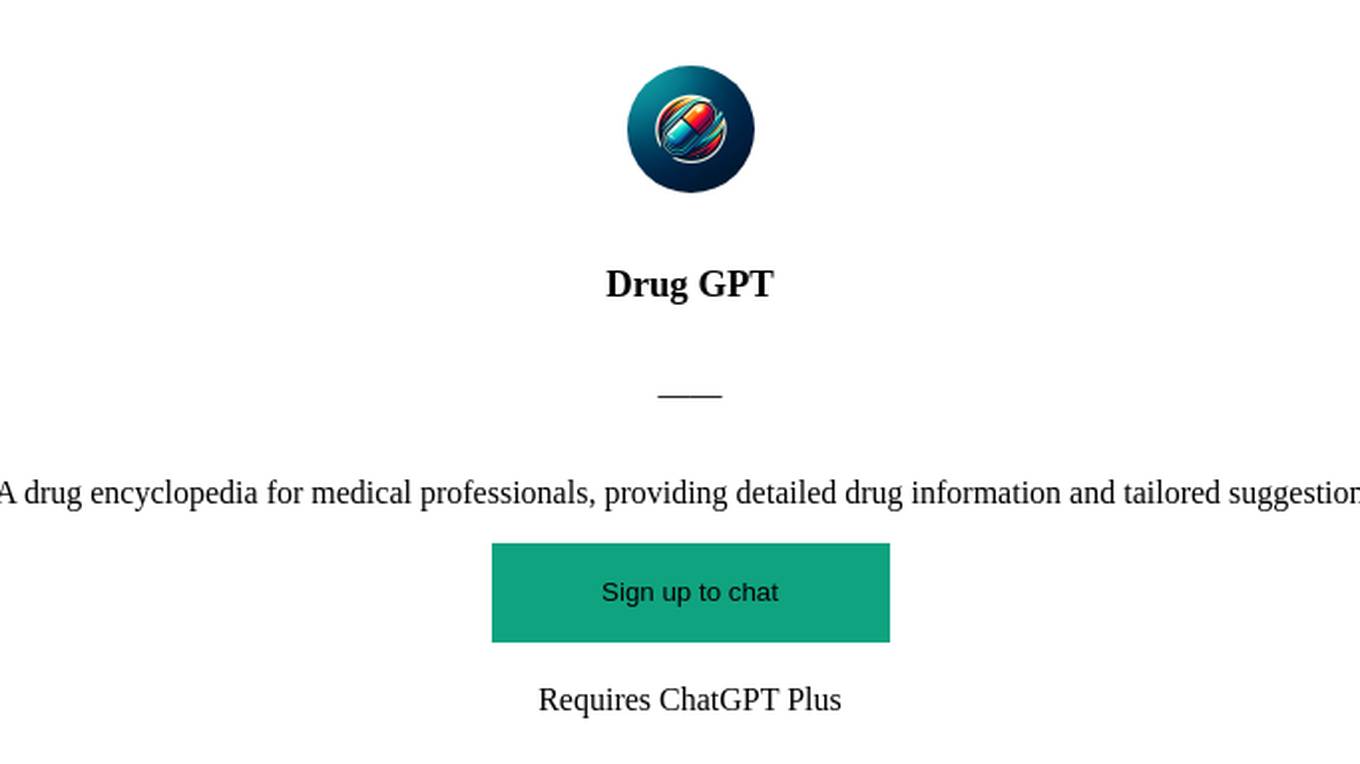
Drug GPT
A drug encyclopedia for medical professionals, providing detailed drug information and tailored suggestions.
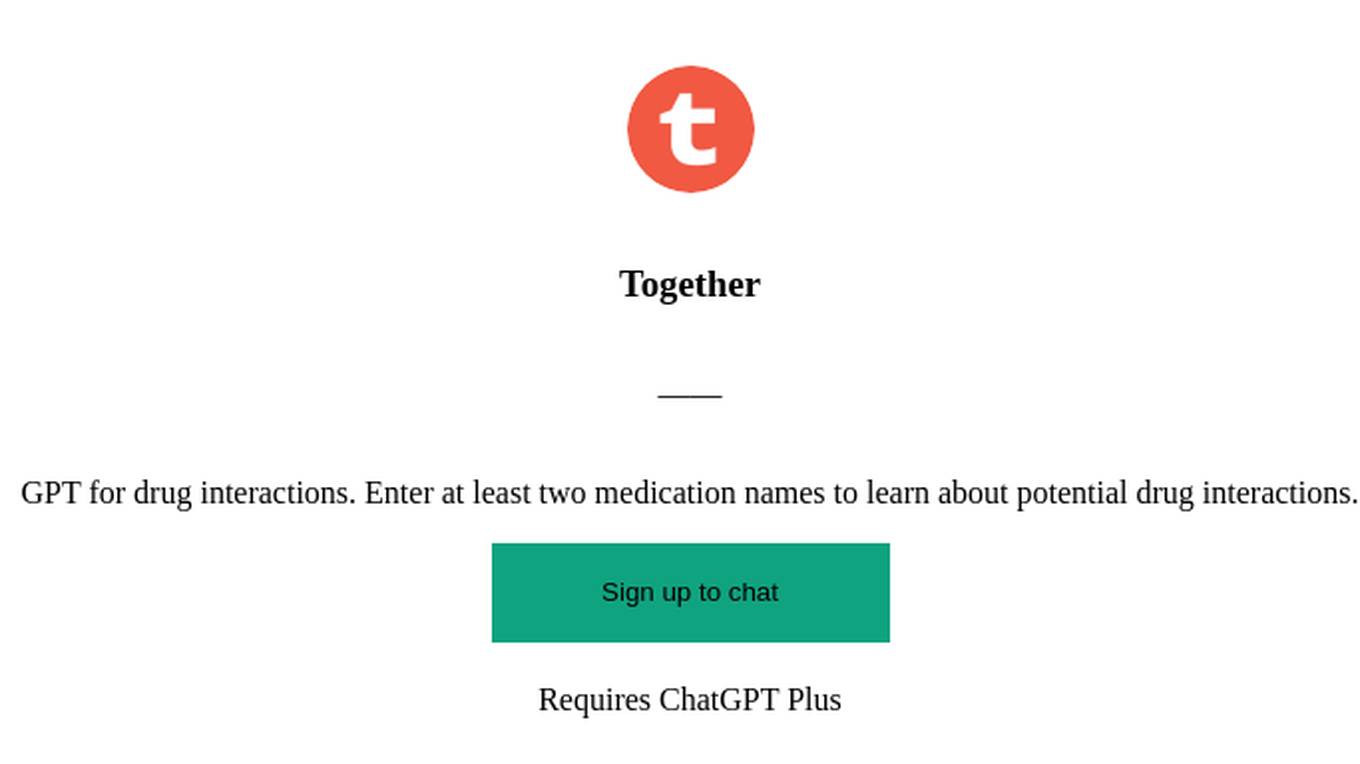
Together
GPT for drug interactions. Enter at least two medication names to learn about potential drug interactions.
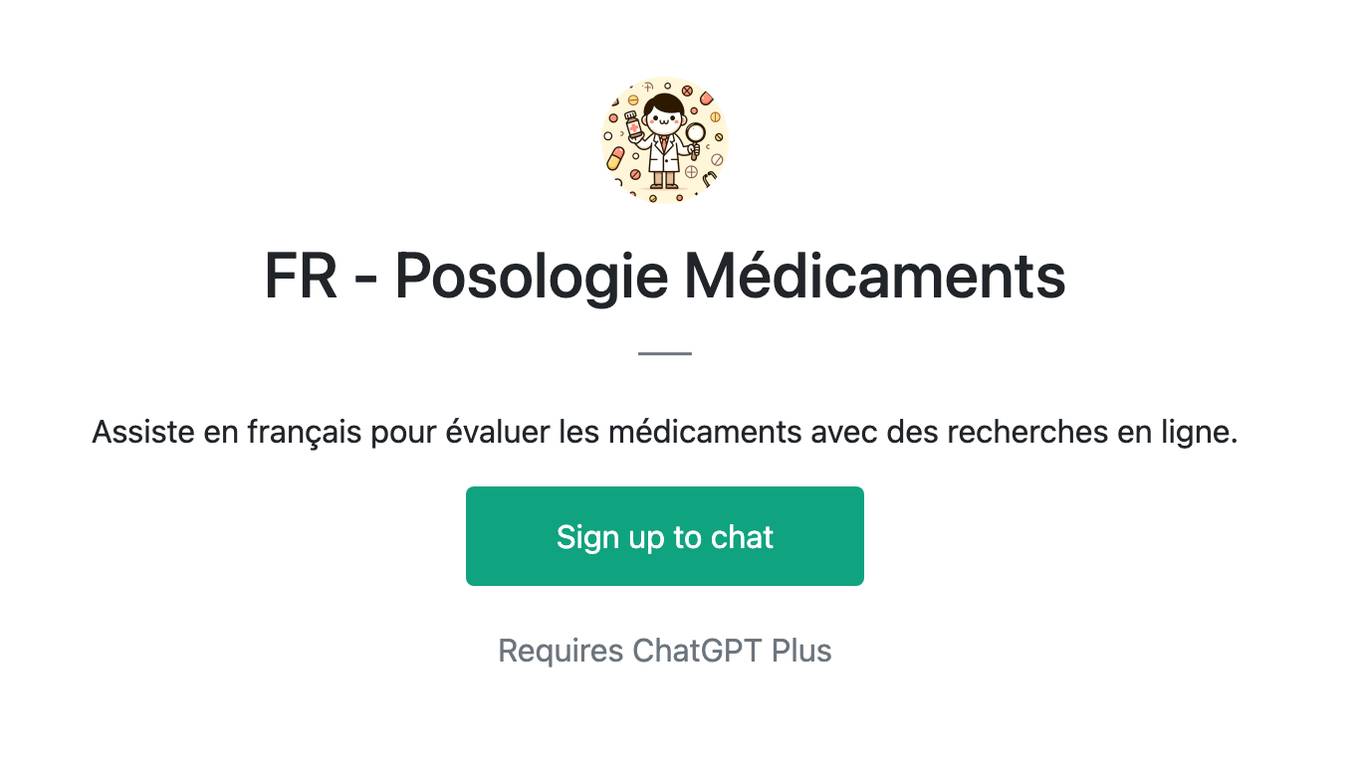
FR - Posologie Médicaments
Assiste en français pour évaluer les médicaments avec des recherches en ligne.
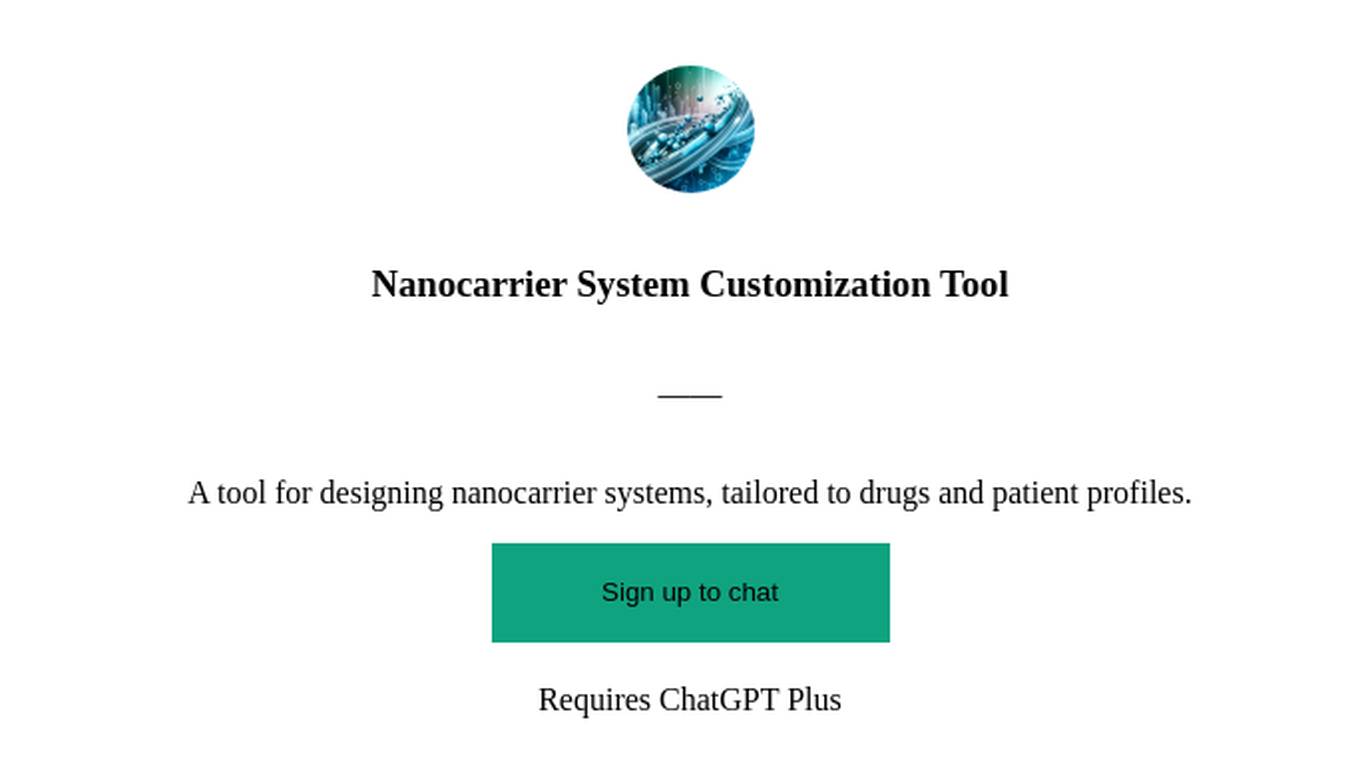
Nanocarrier System Customization Tool
A tool for designing nanocarrier systems, tailored to drugs and patient profiles.
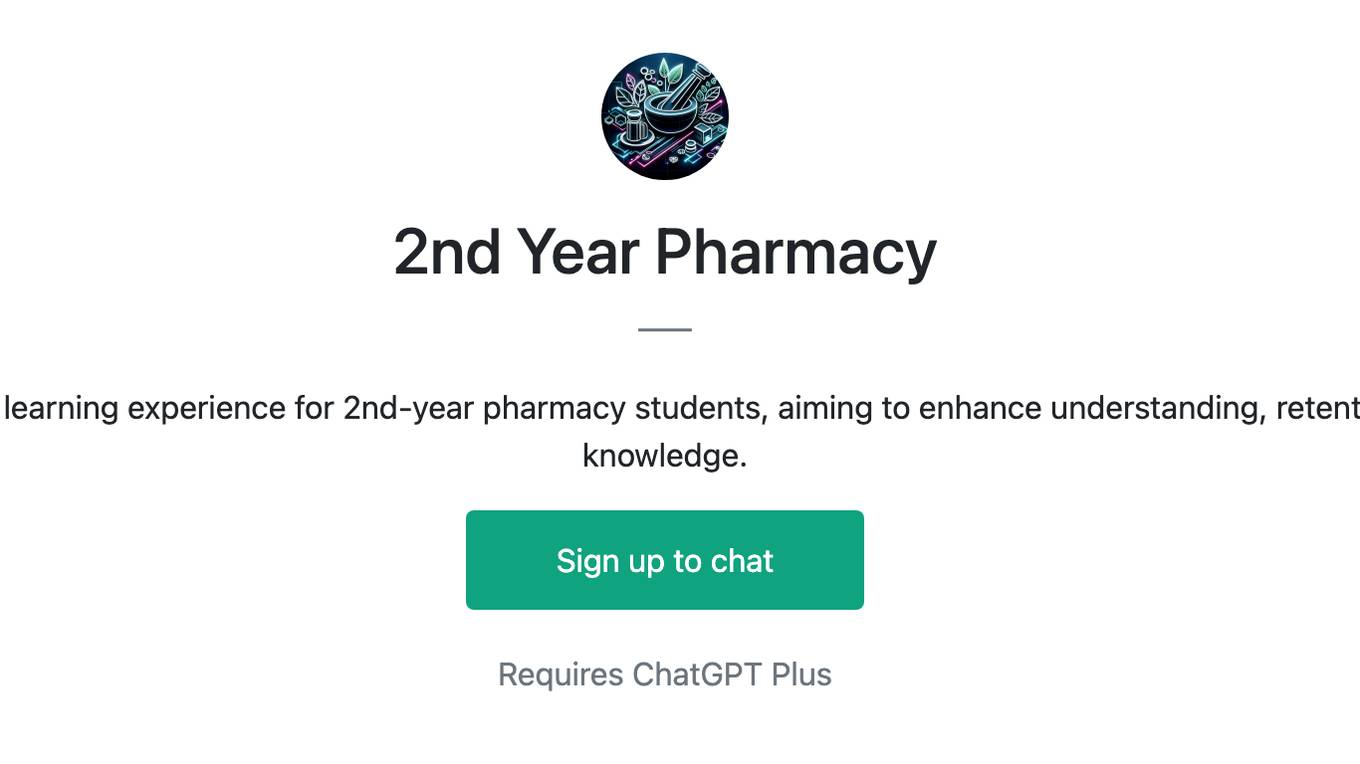
2nd Year Pharmacy
To provide a comprehensive AI-assisted learning experience for 2nd-year pharmacy students, aiming to enhance understanding, retention, and application of pharmaceutical knowledge.
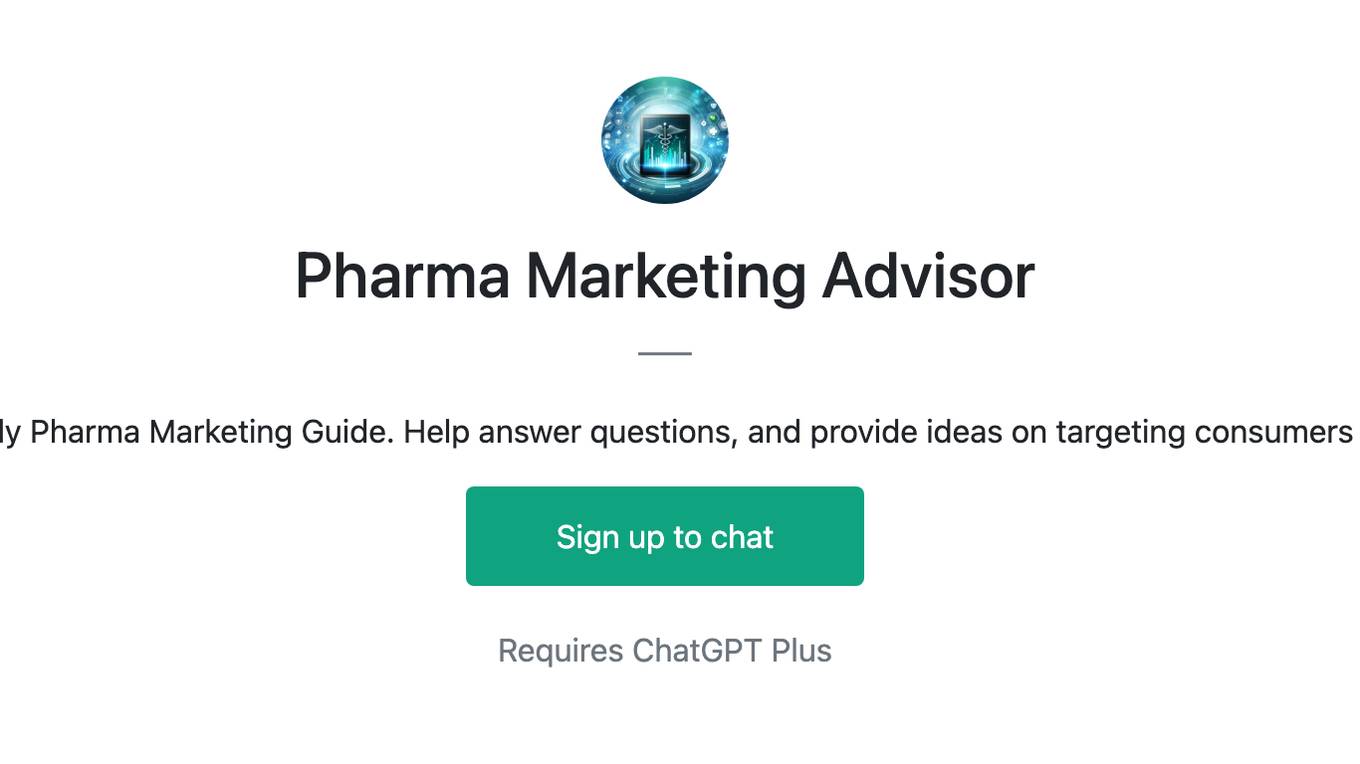
Pharma Marketing Advisor
User-Friendly Pharma Marketing Guide. Help answer questions, and provide ideas on targeting consumers and HCPs
